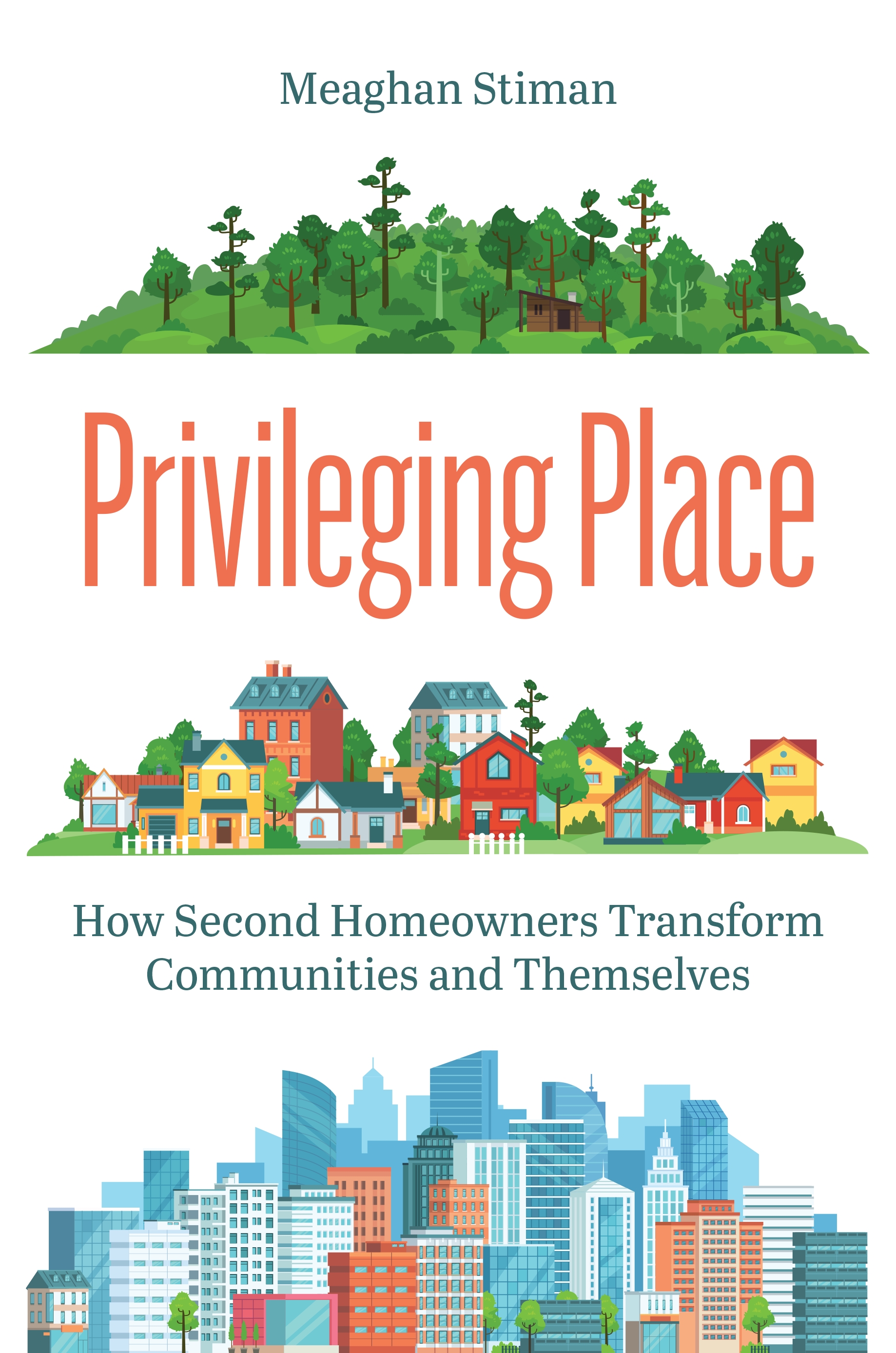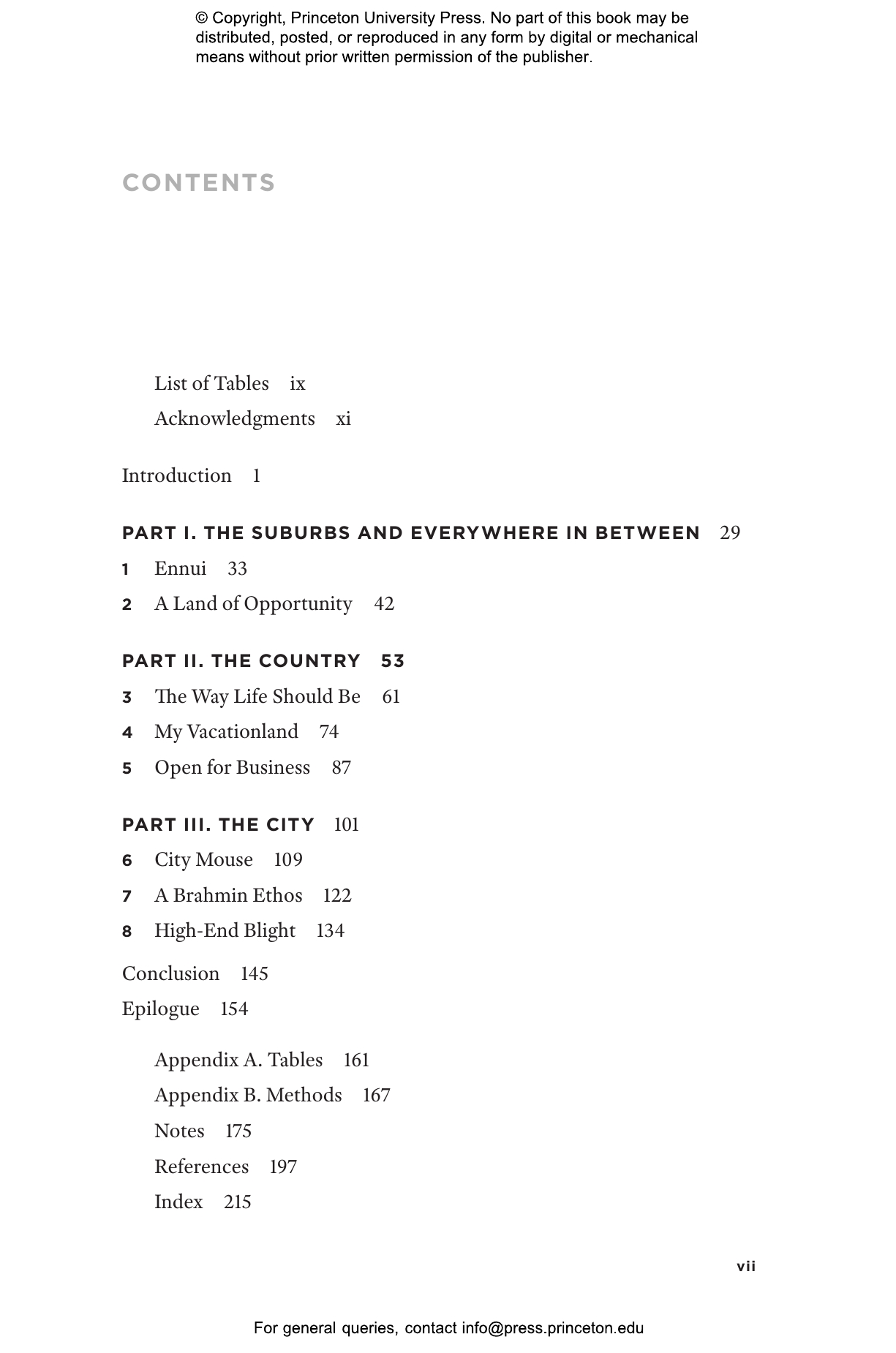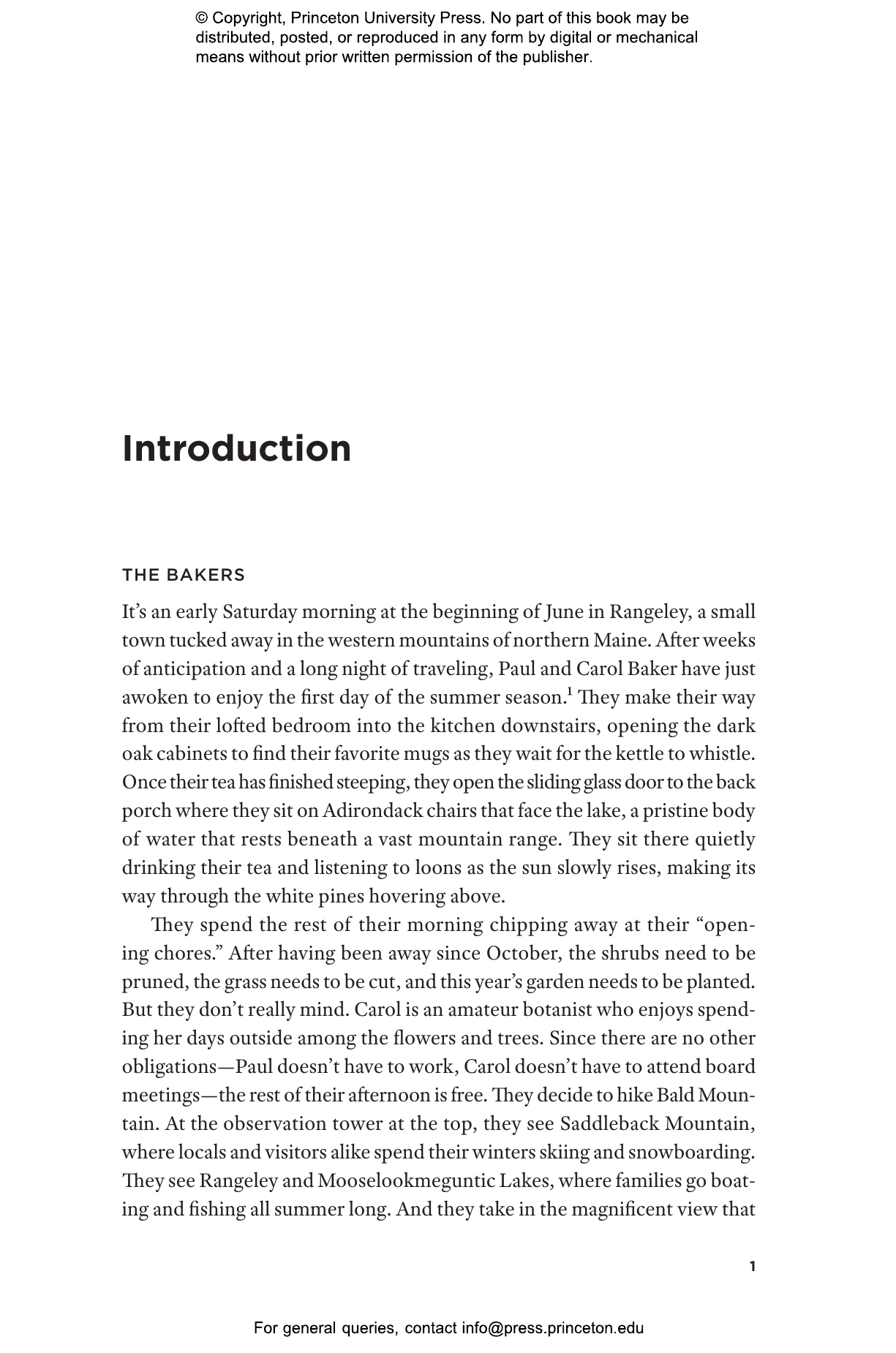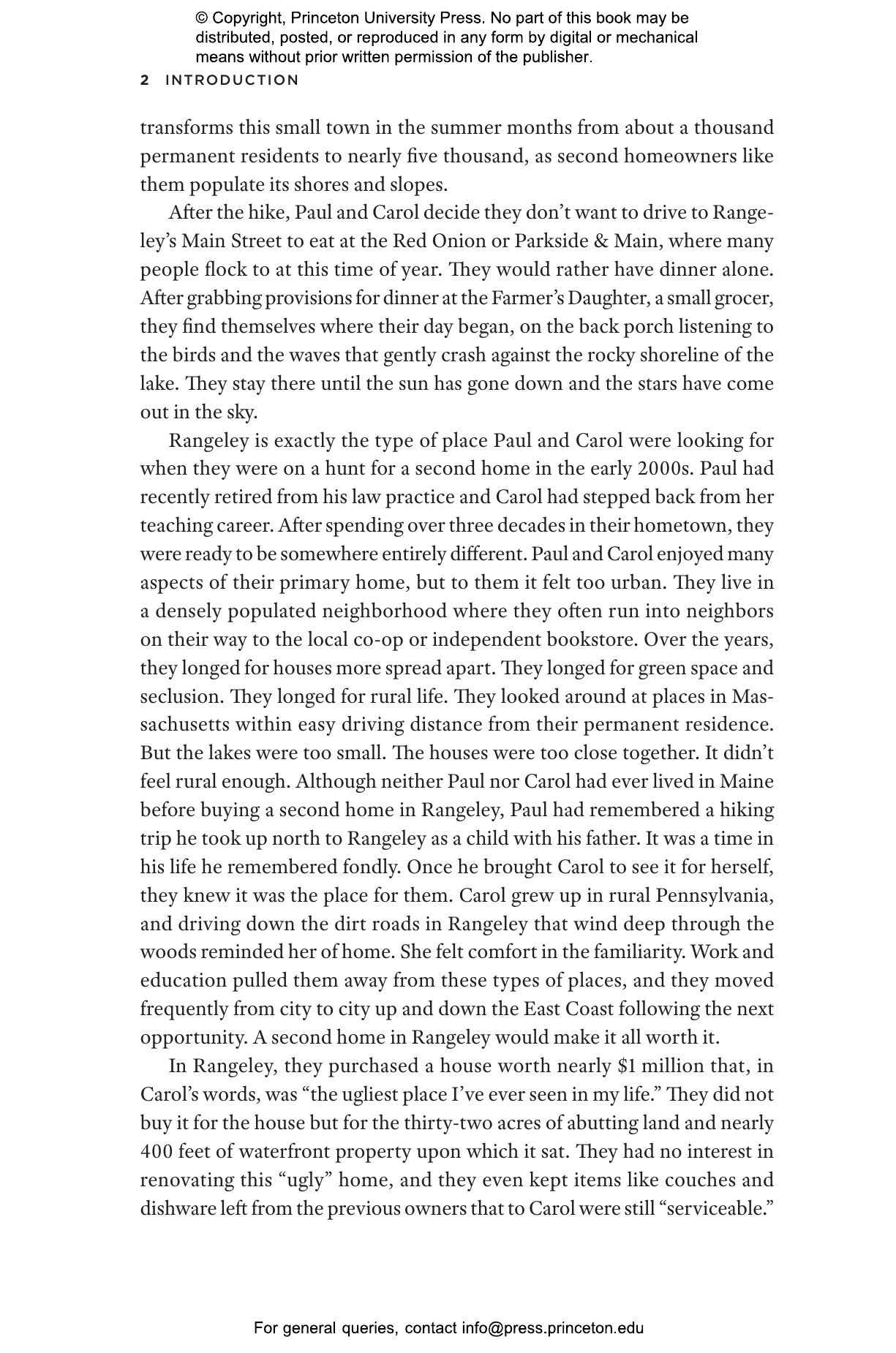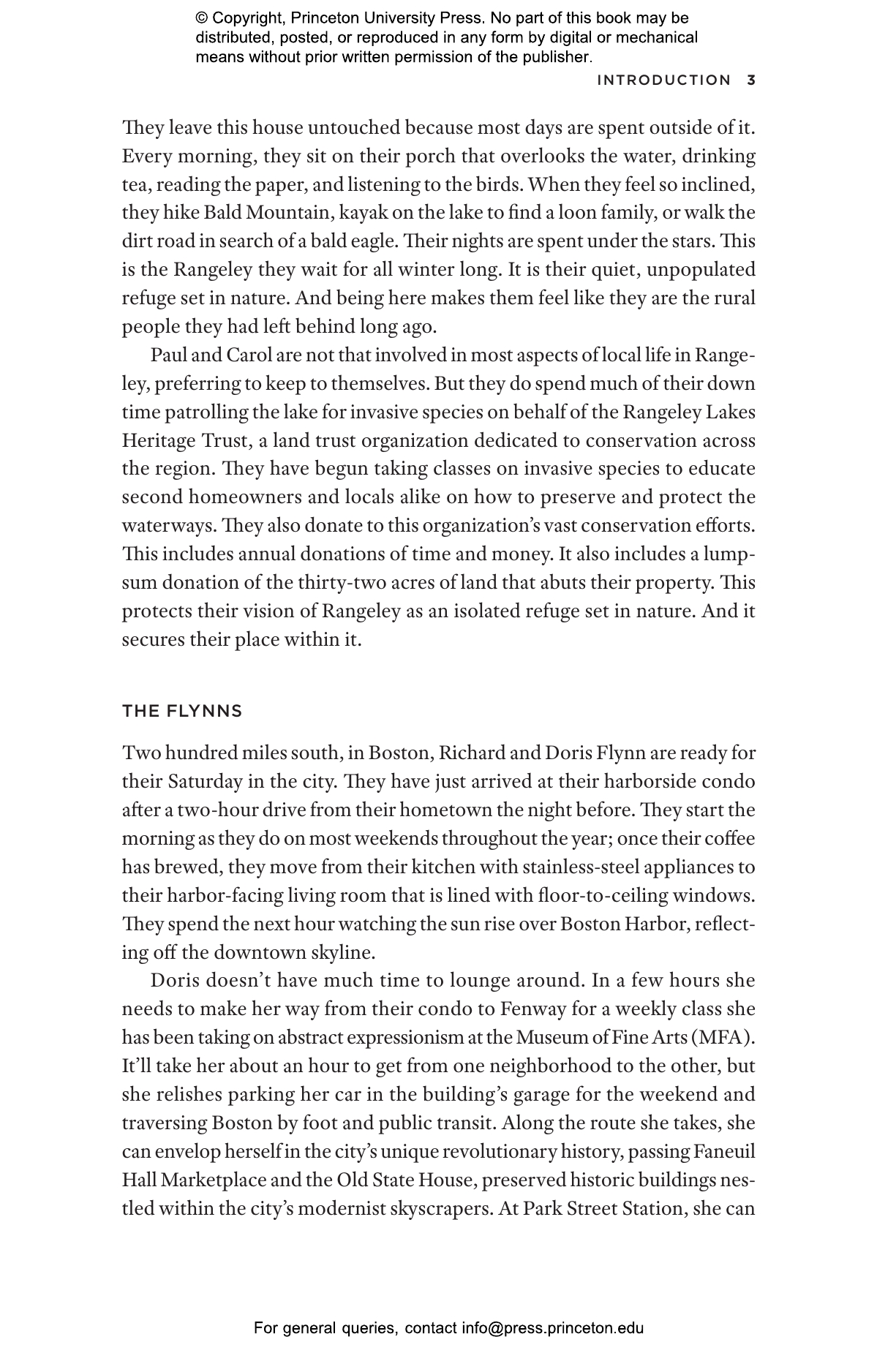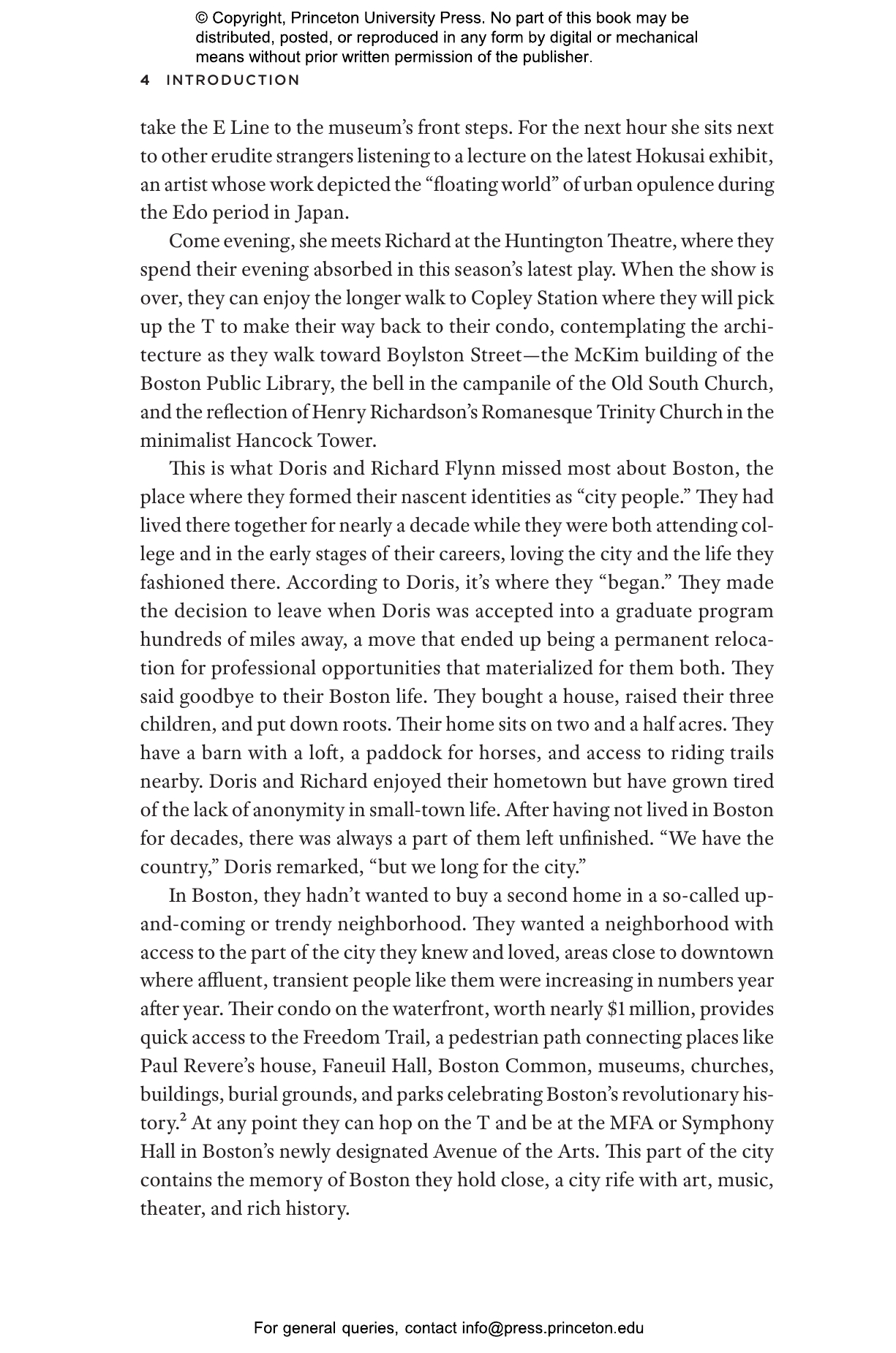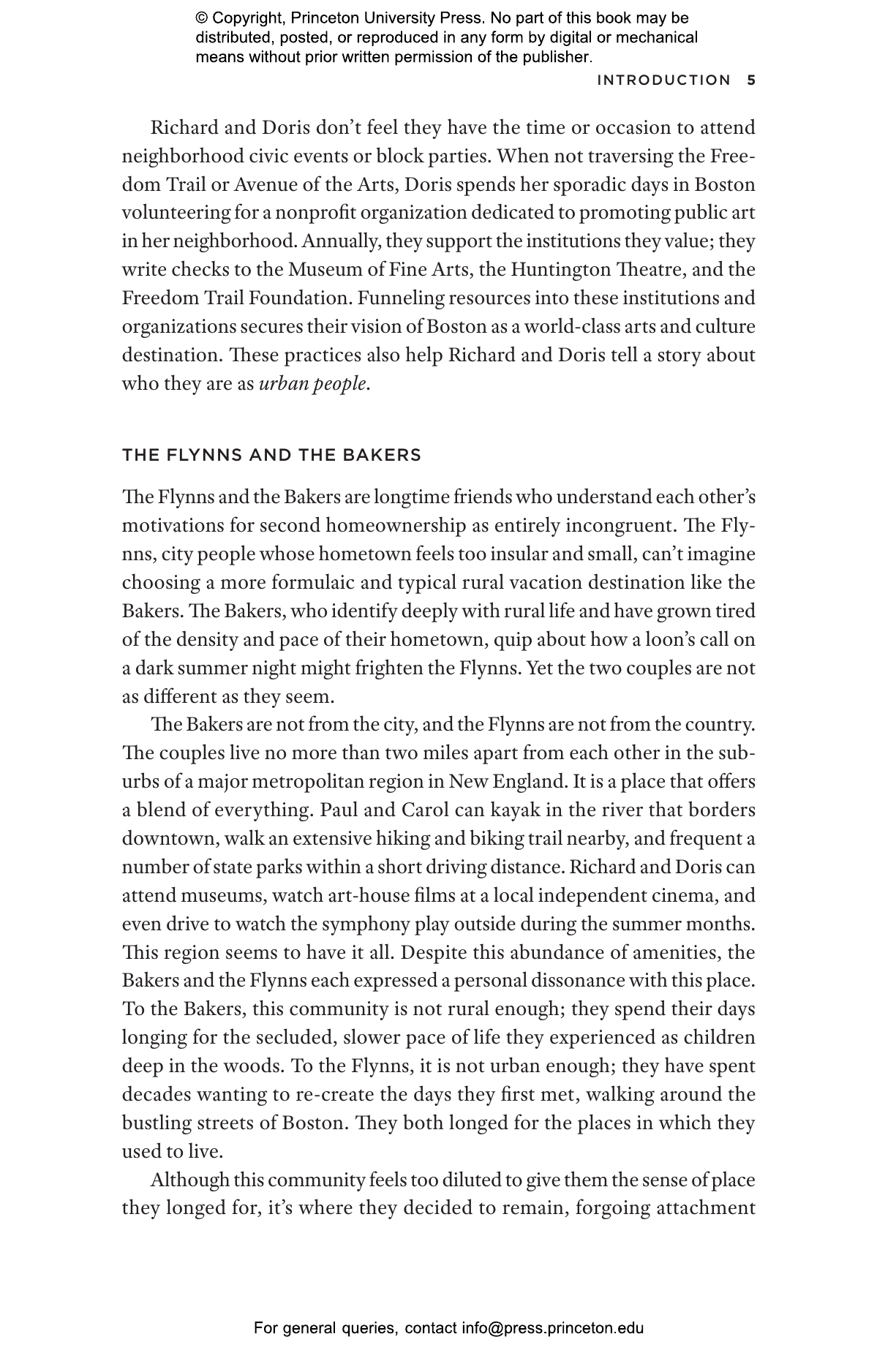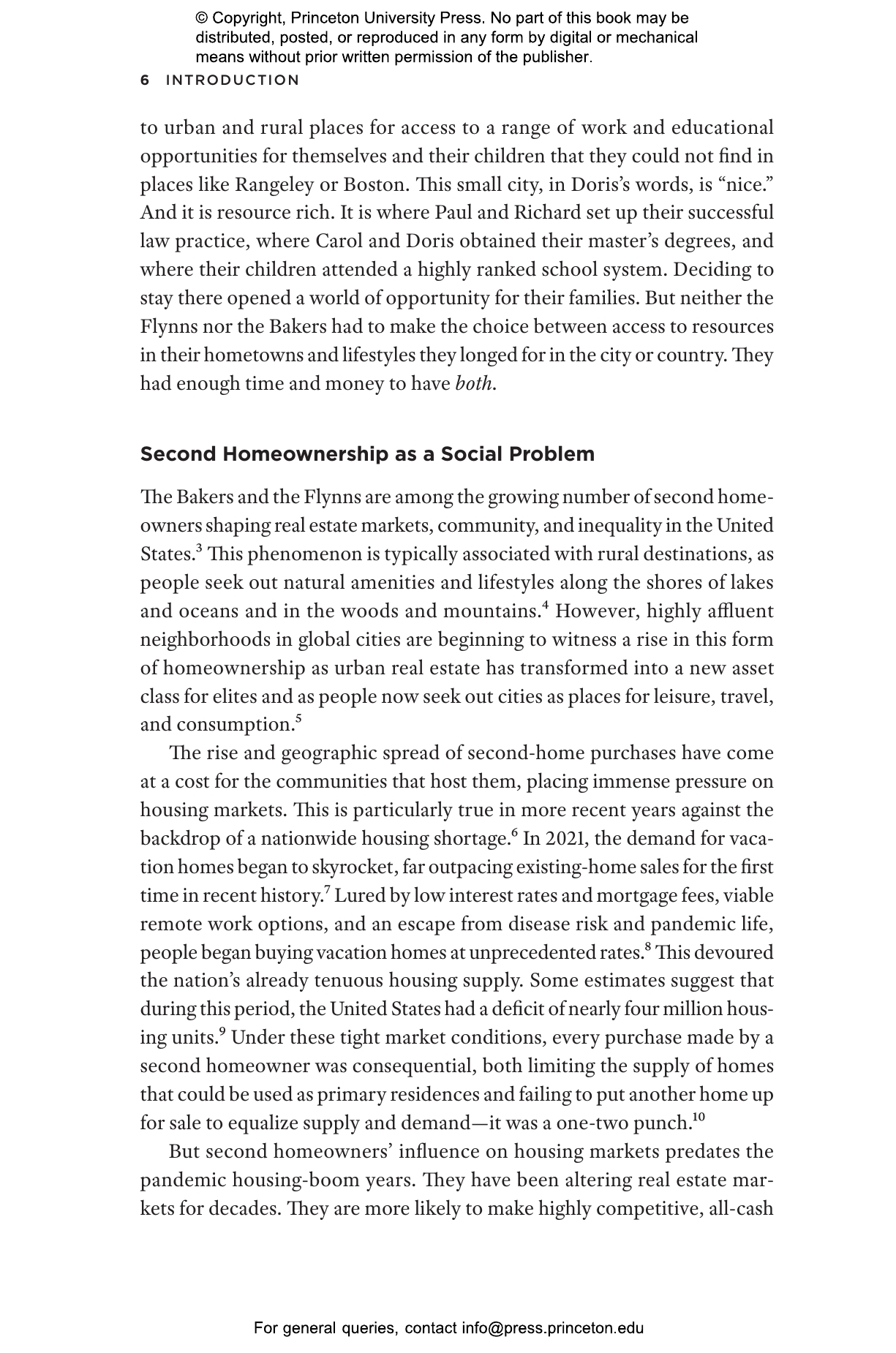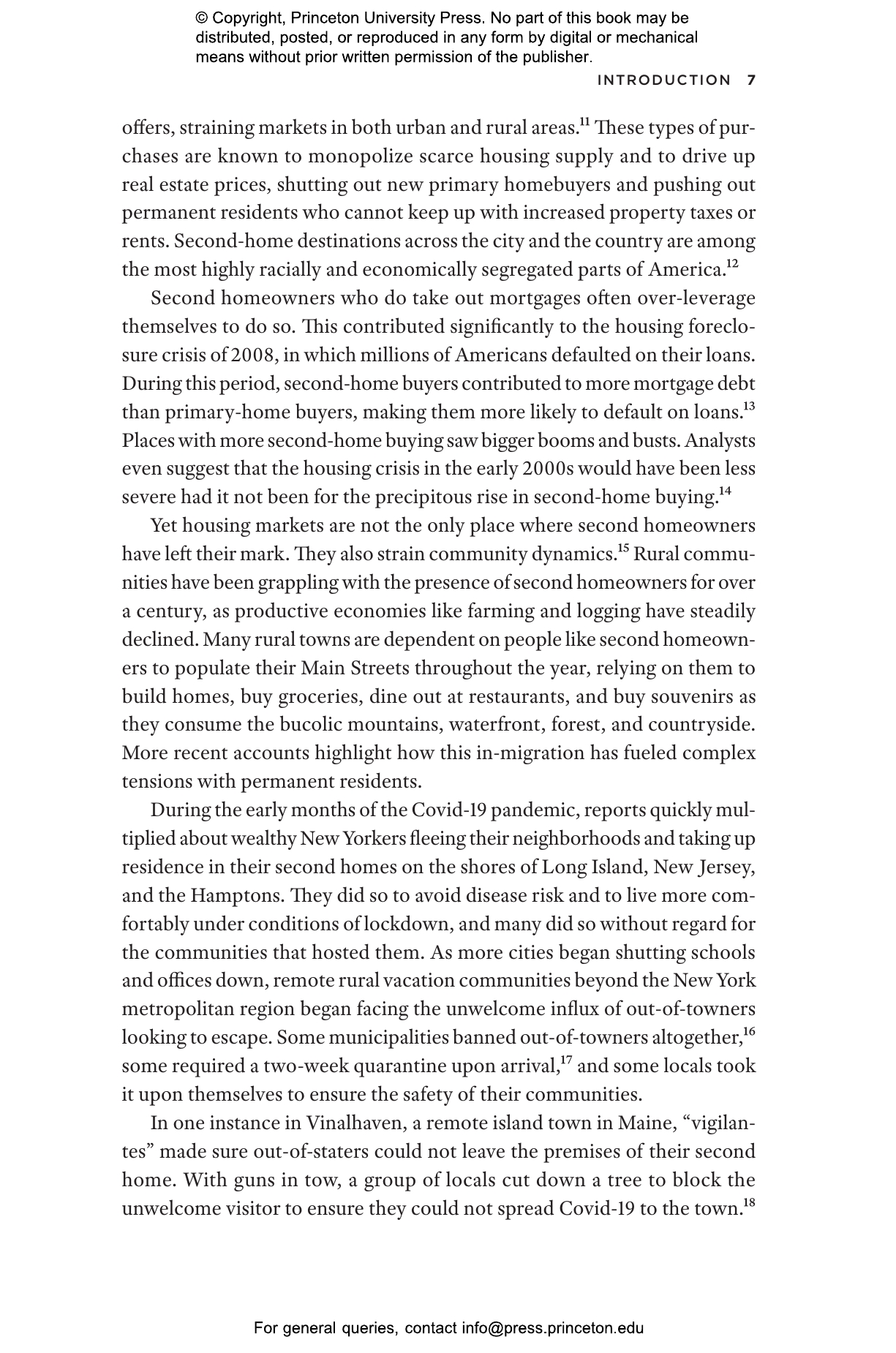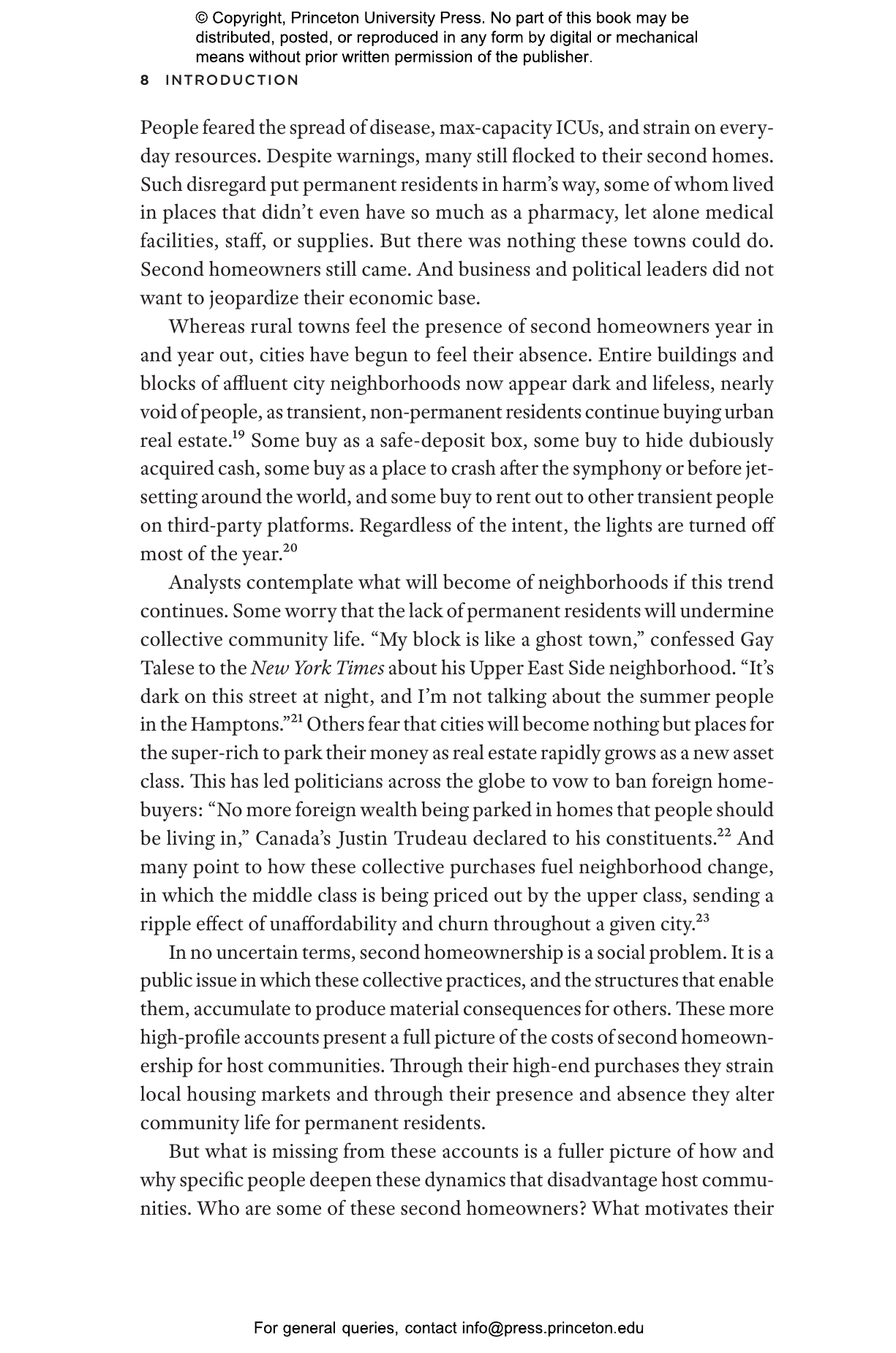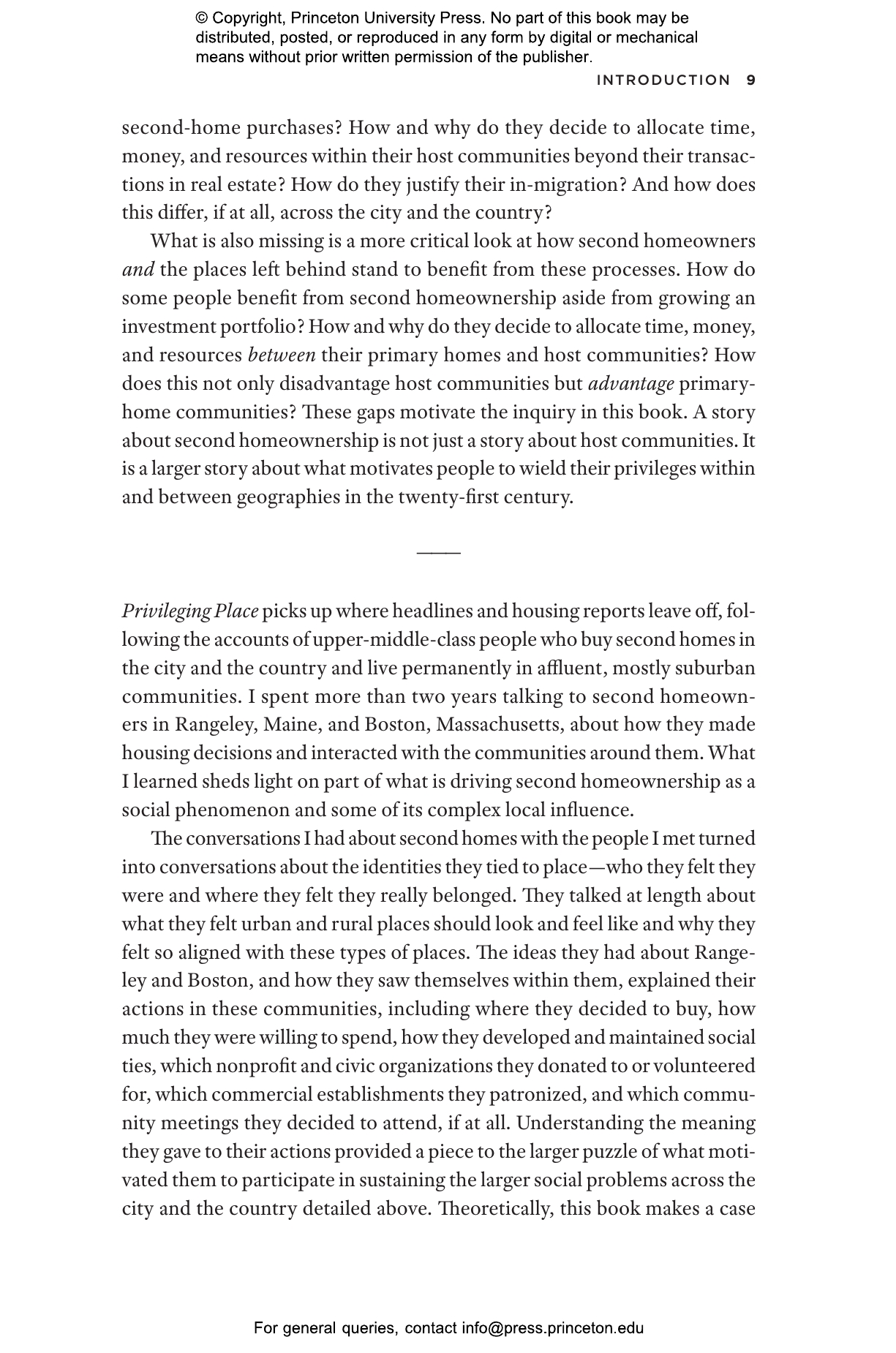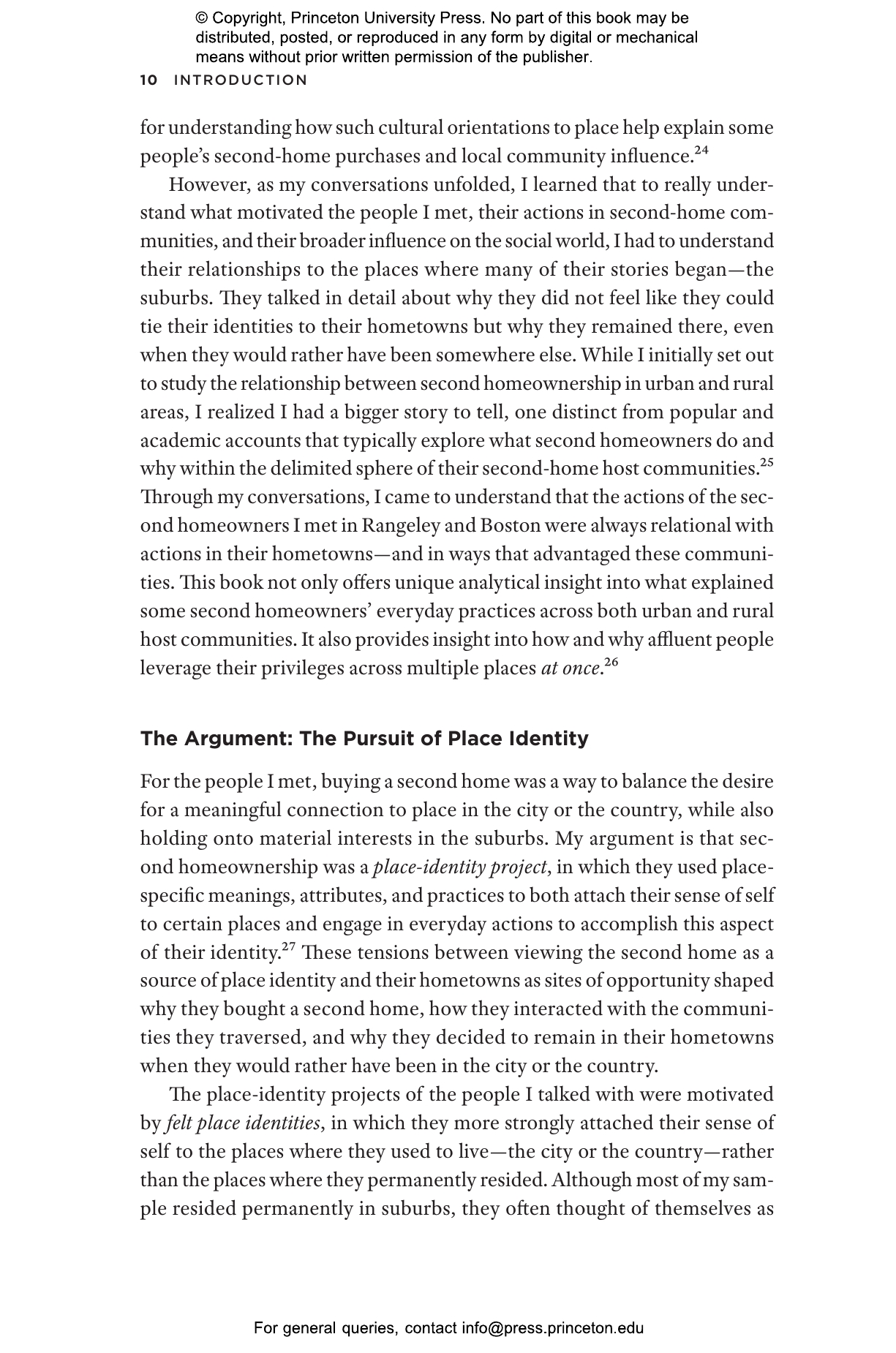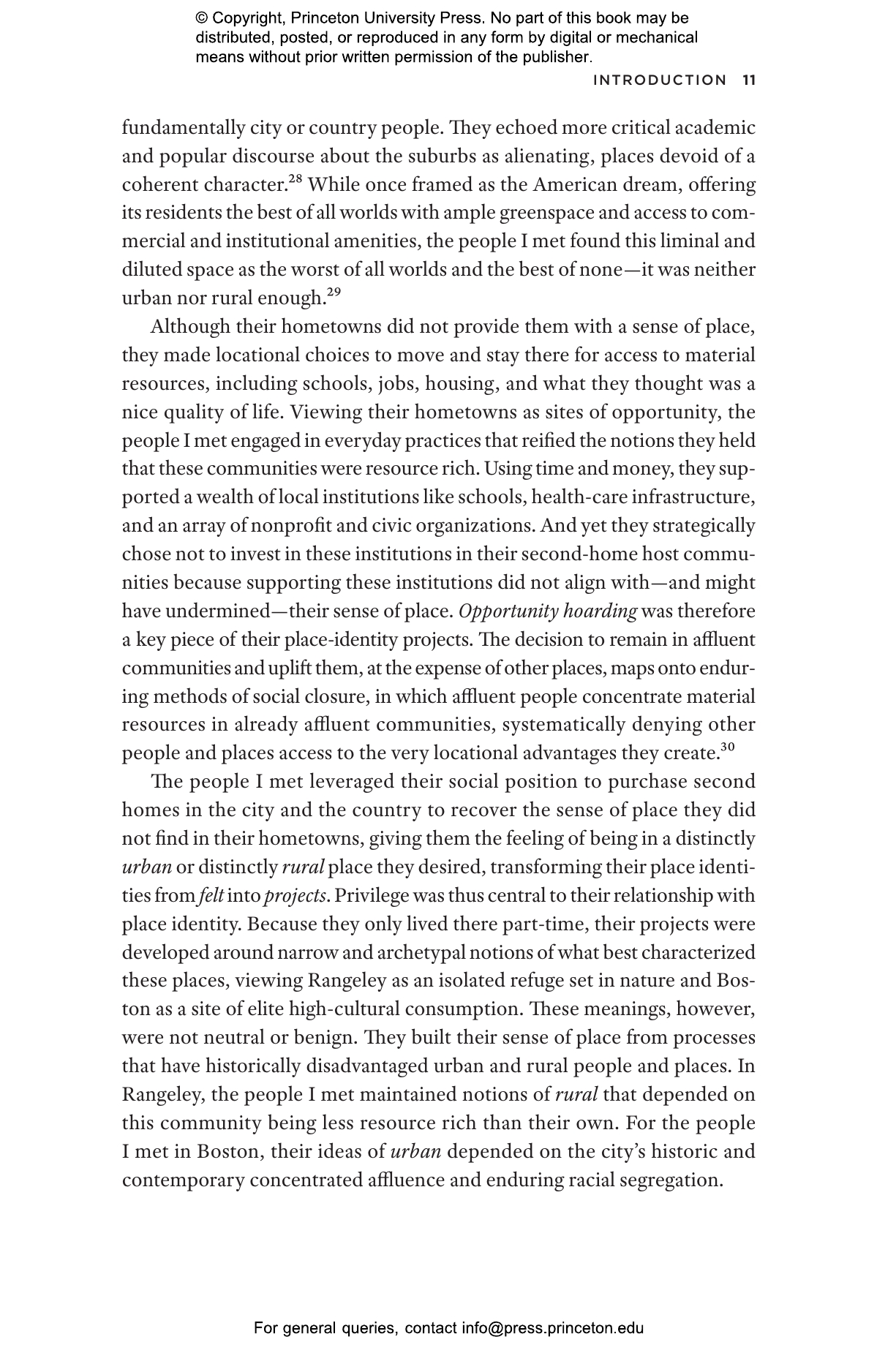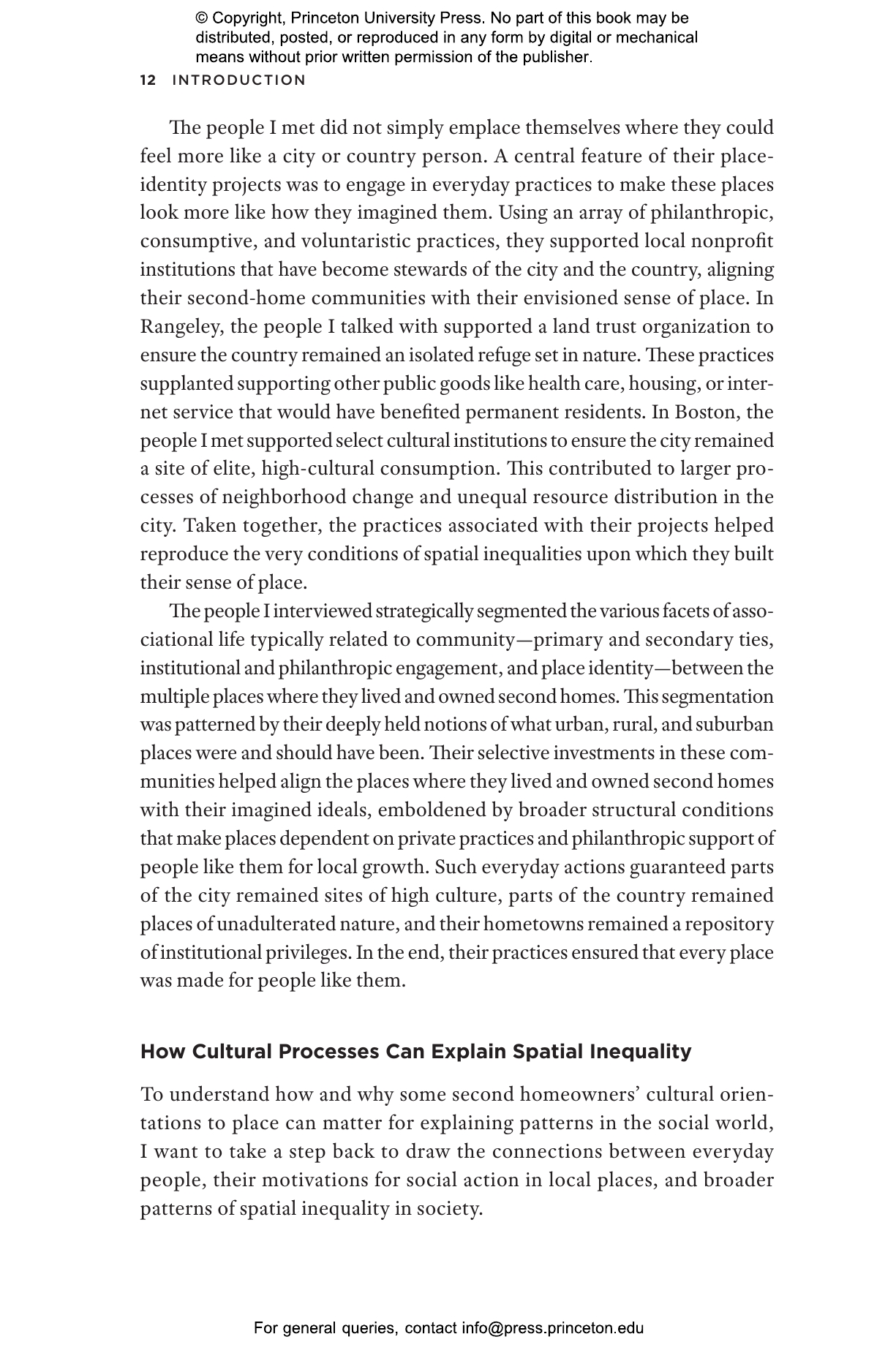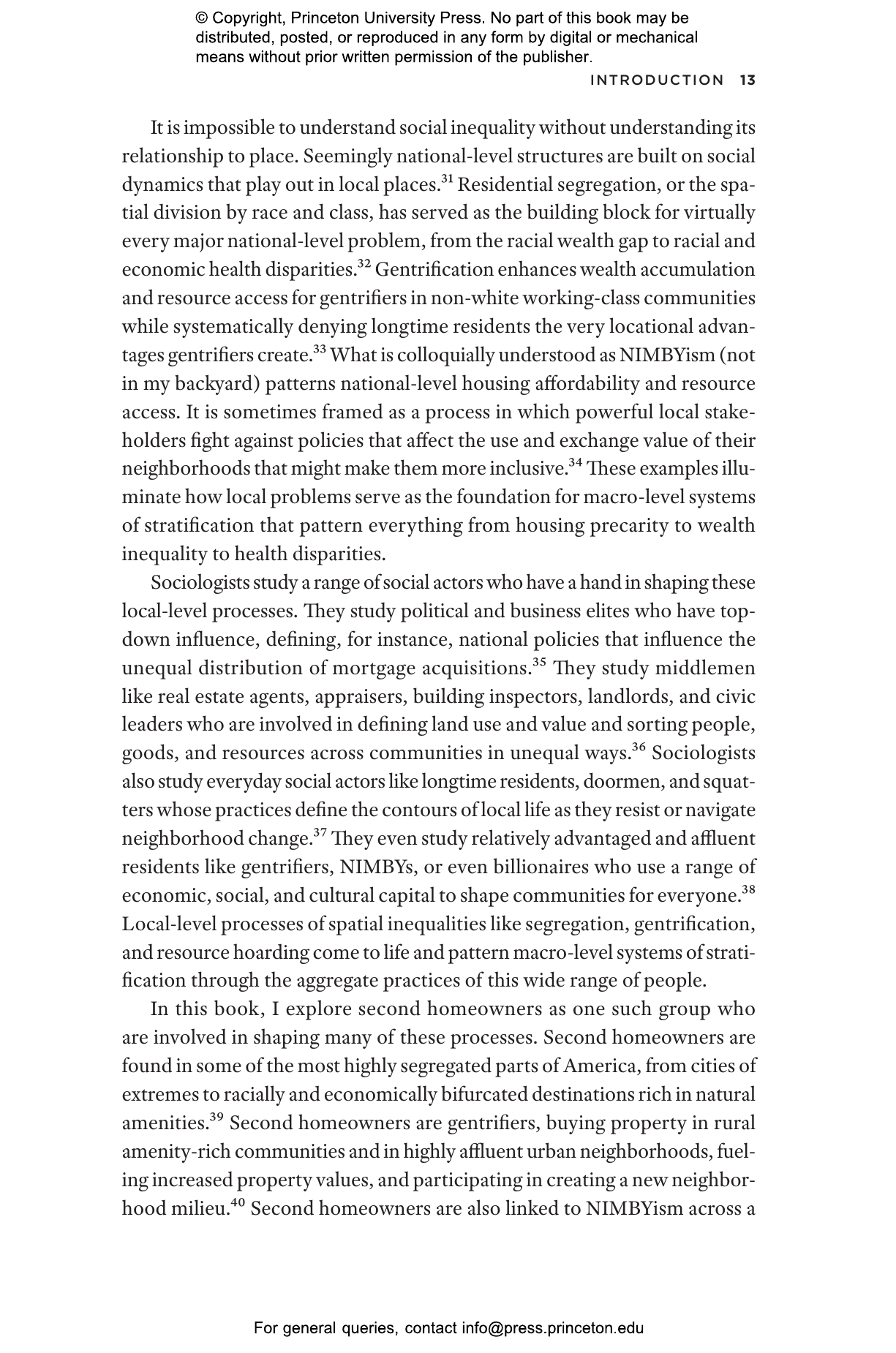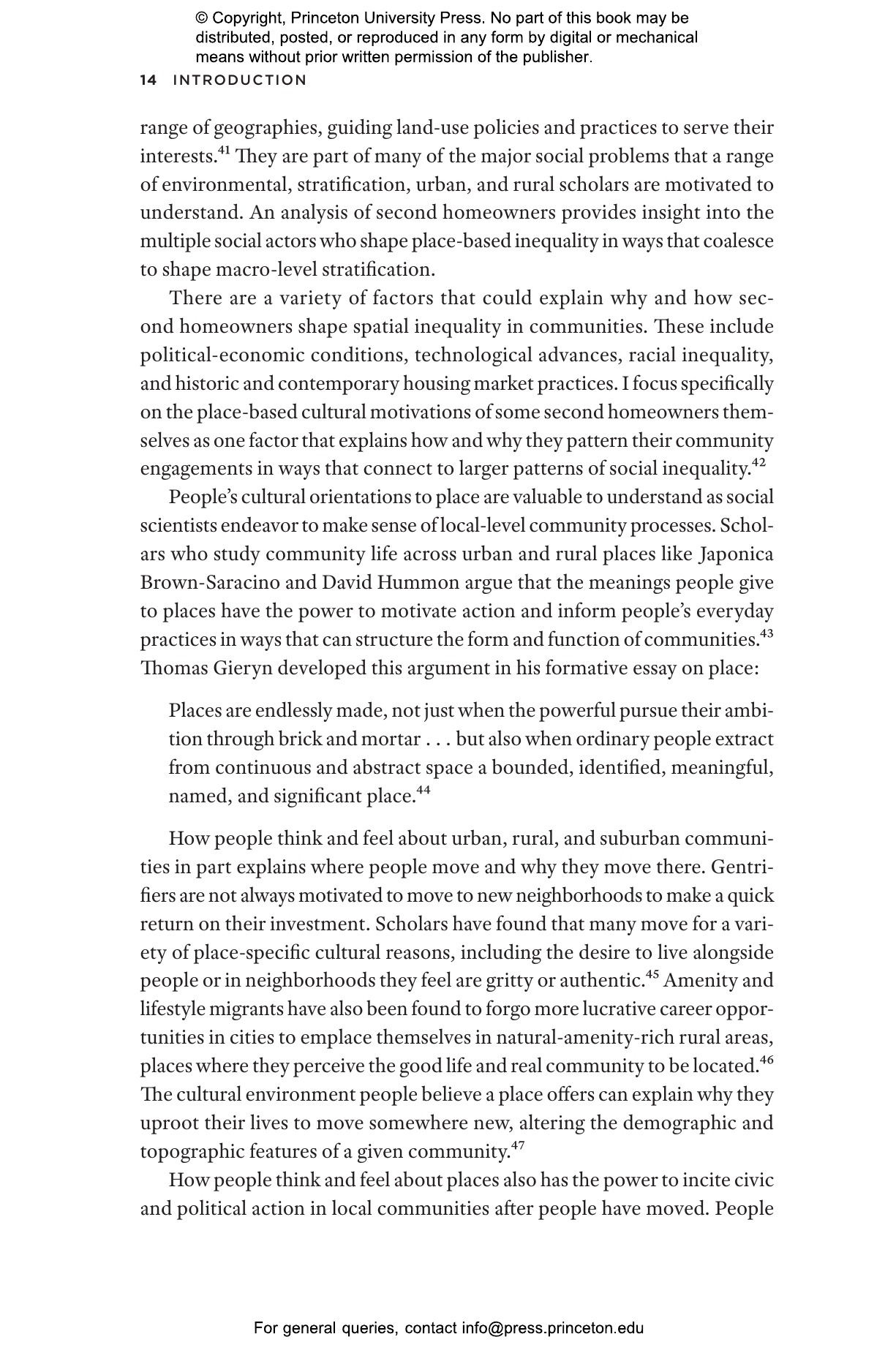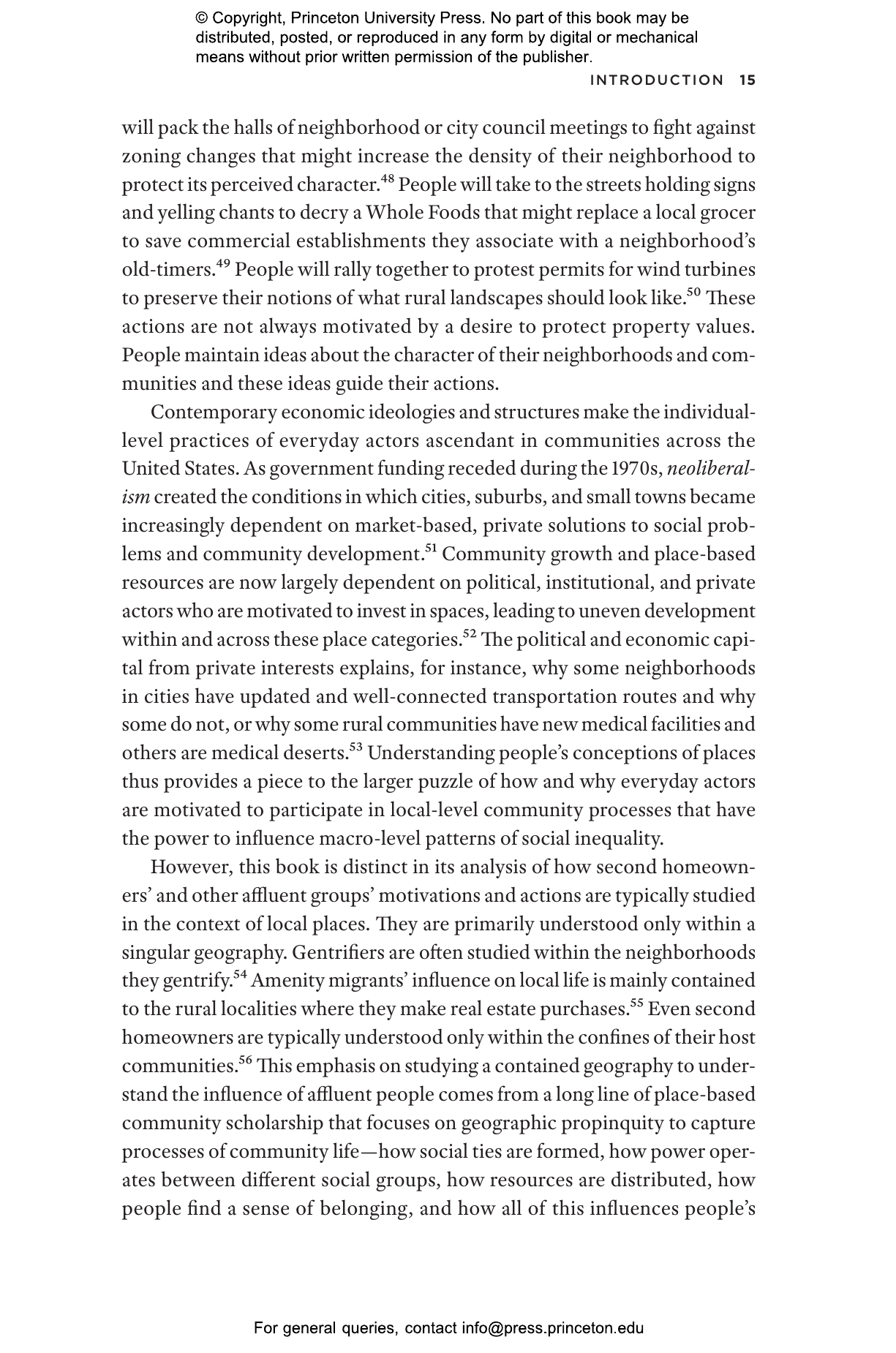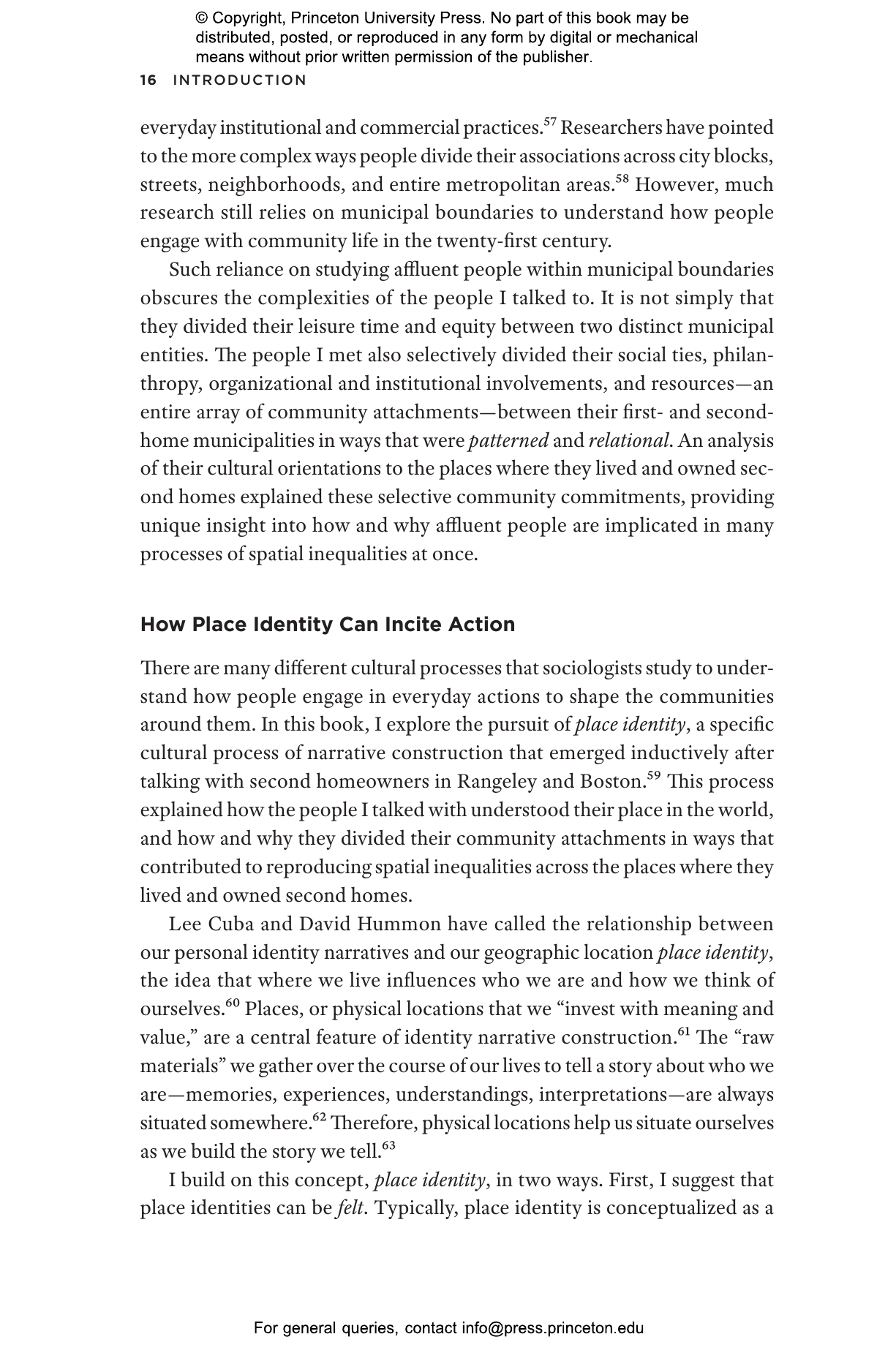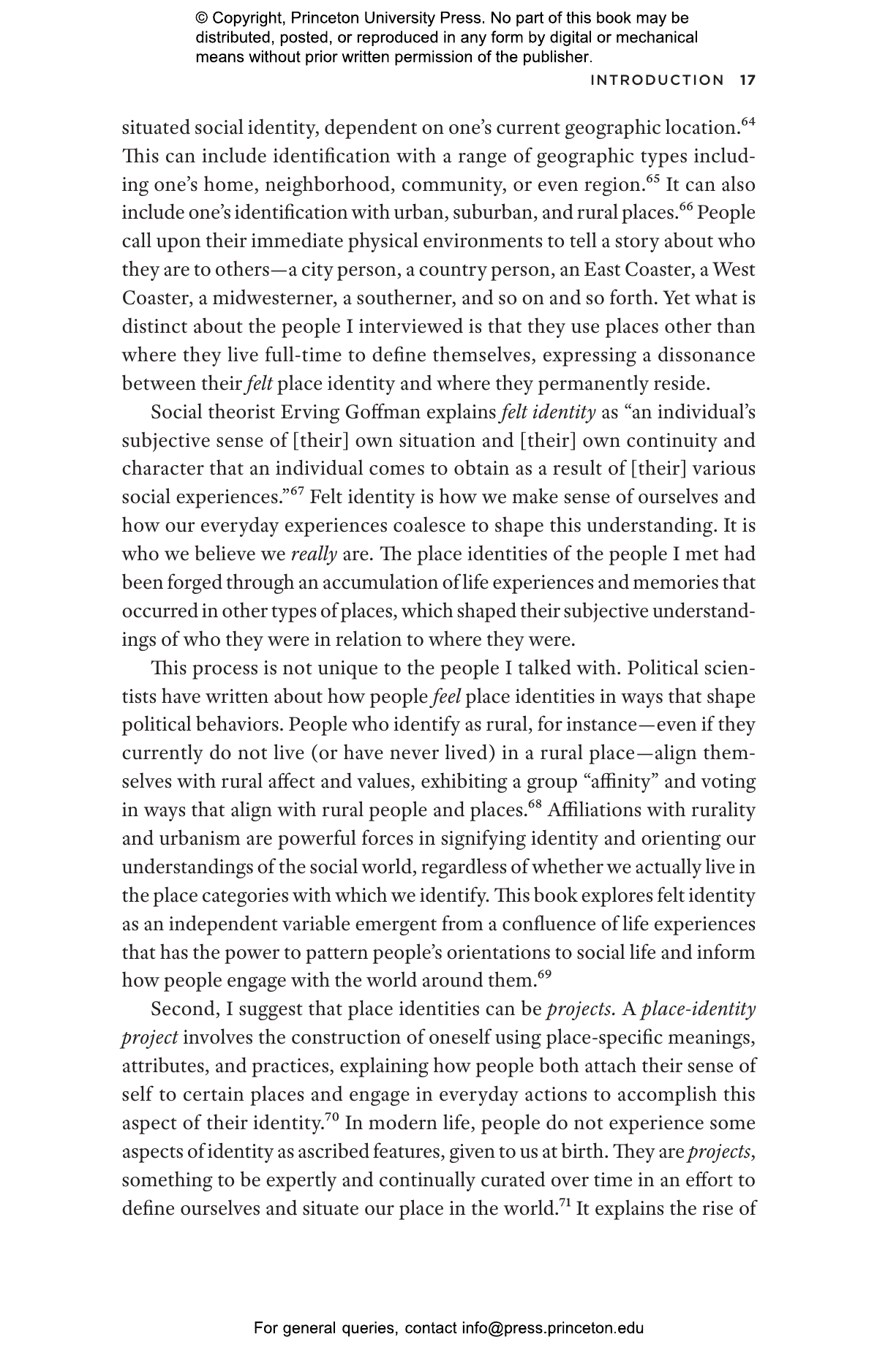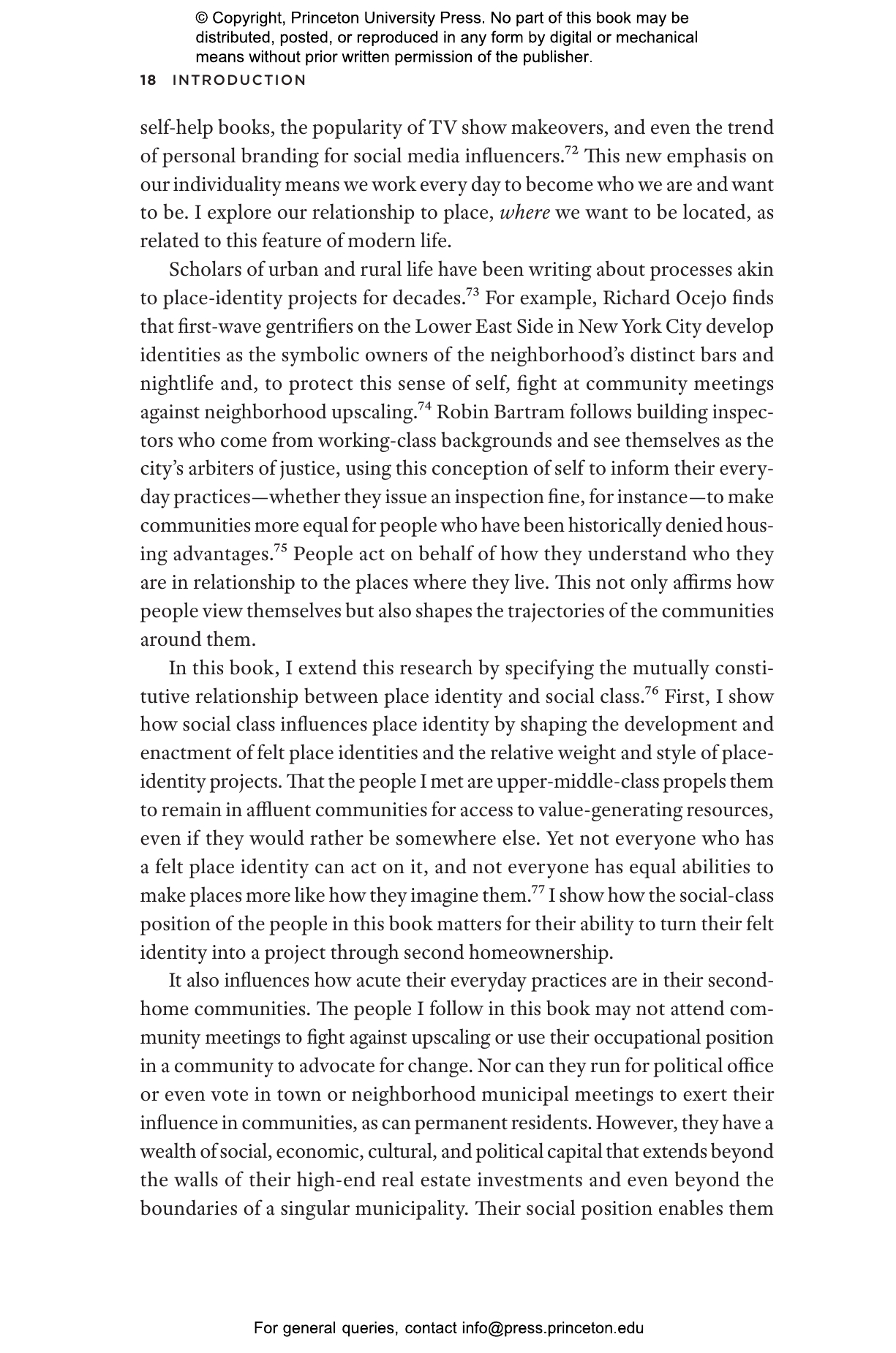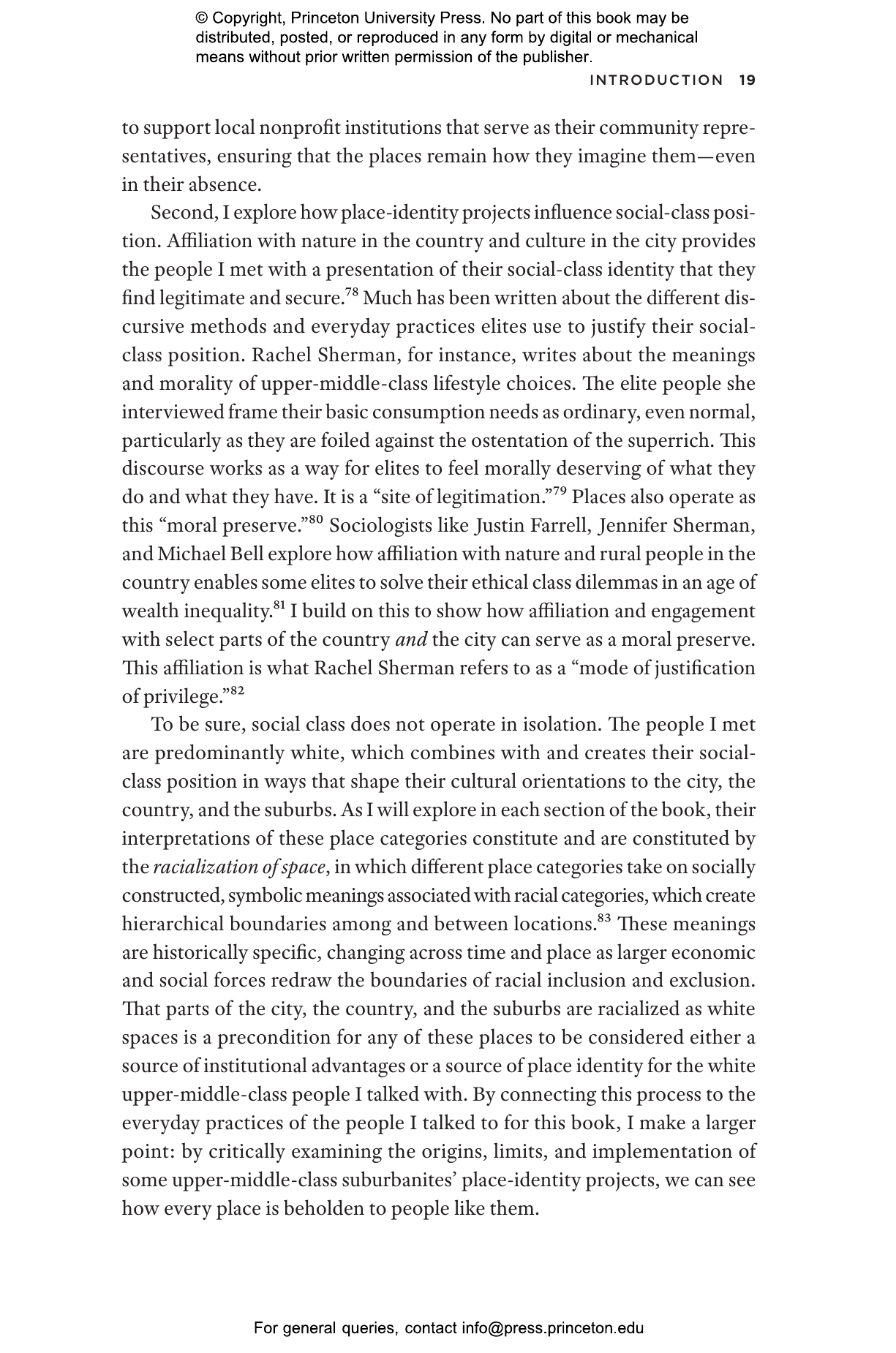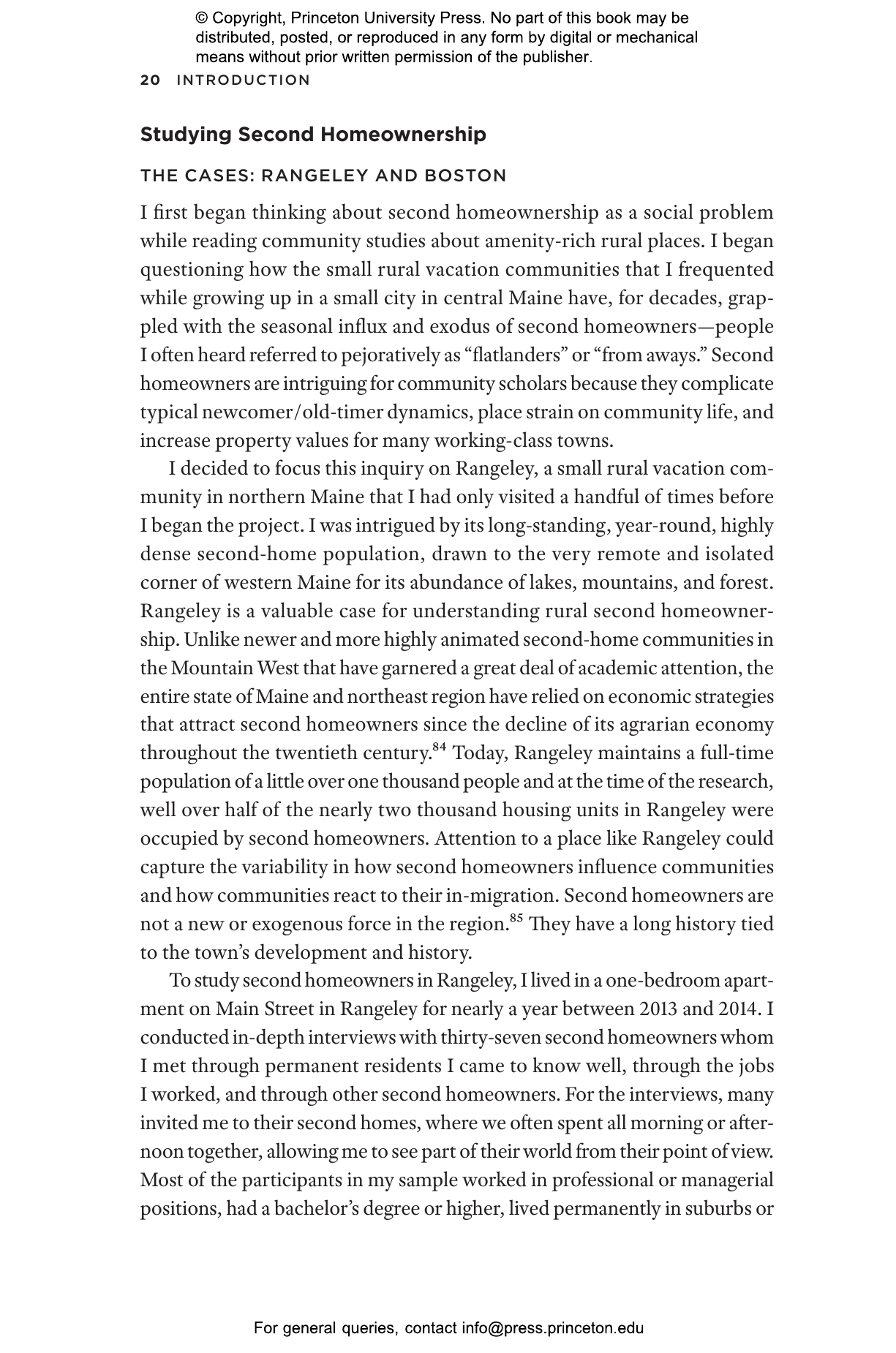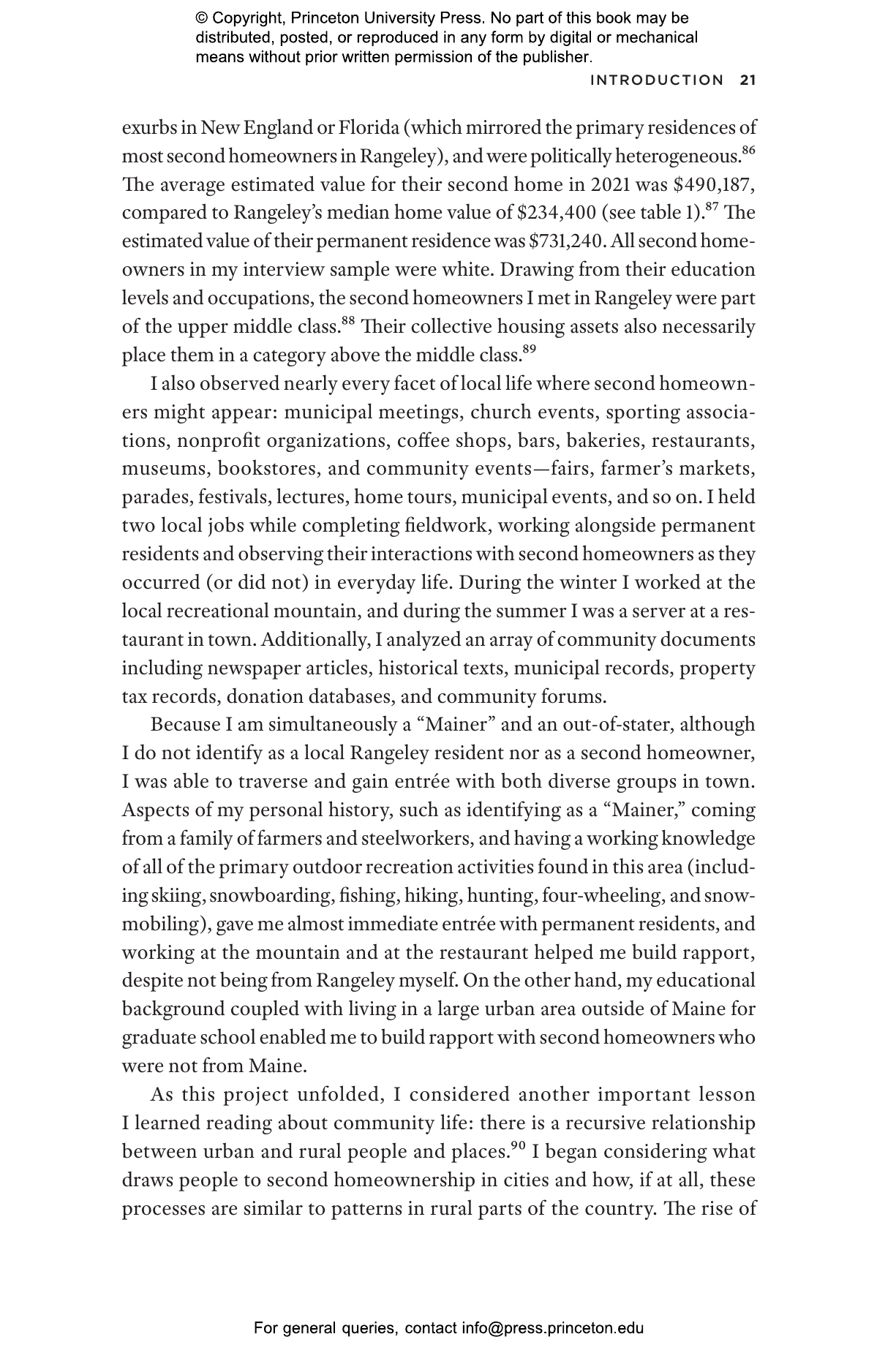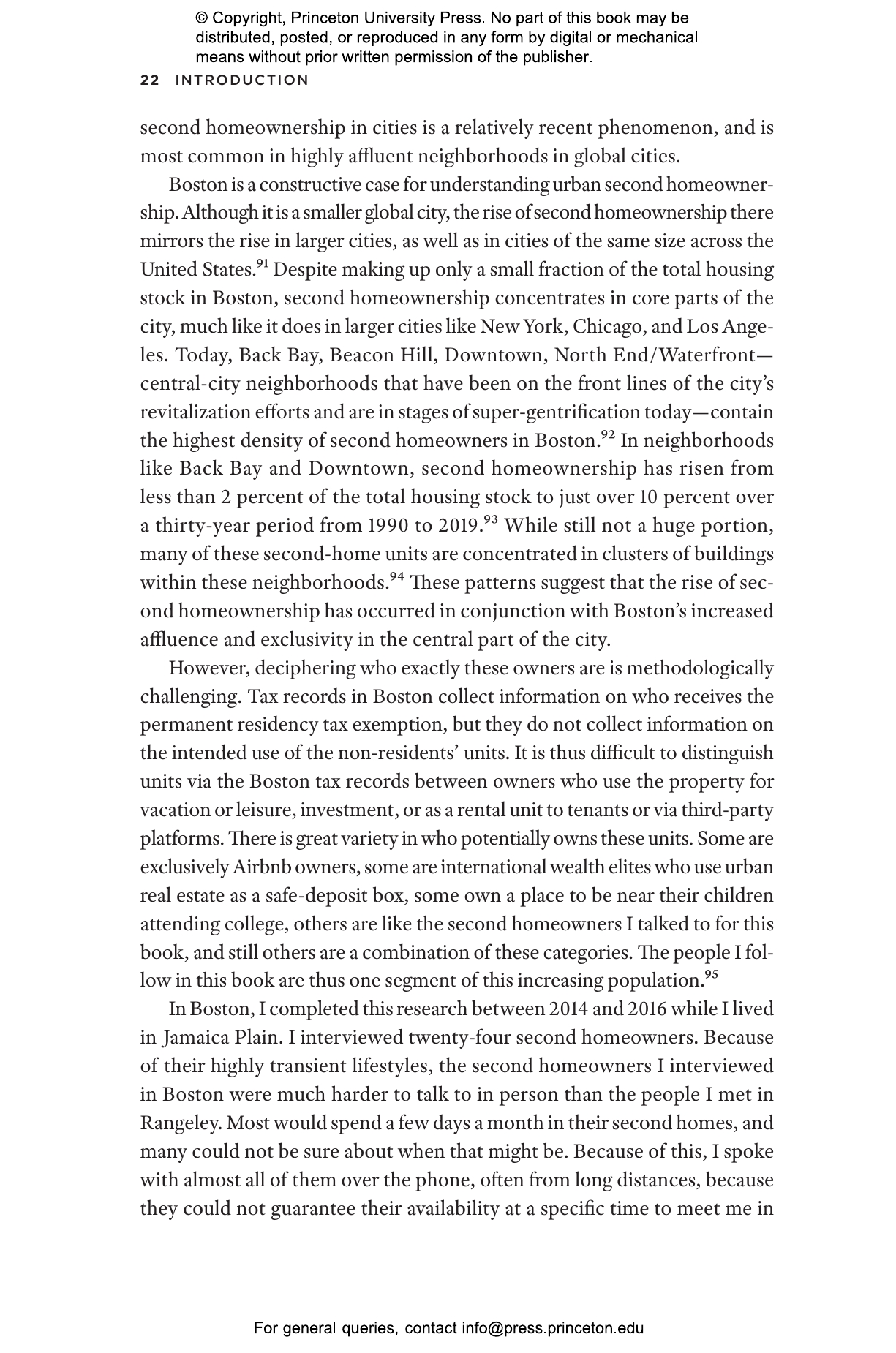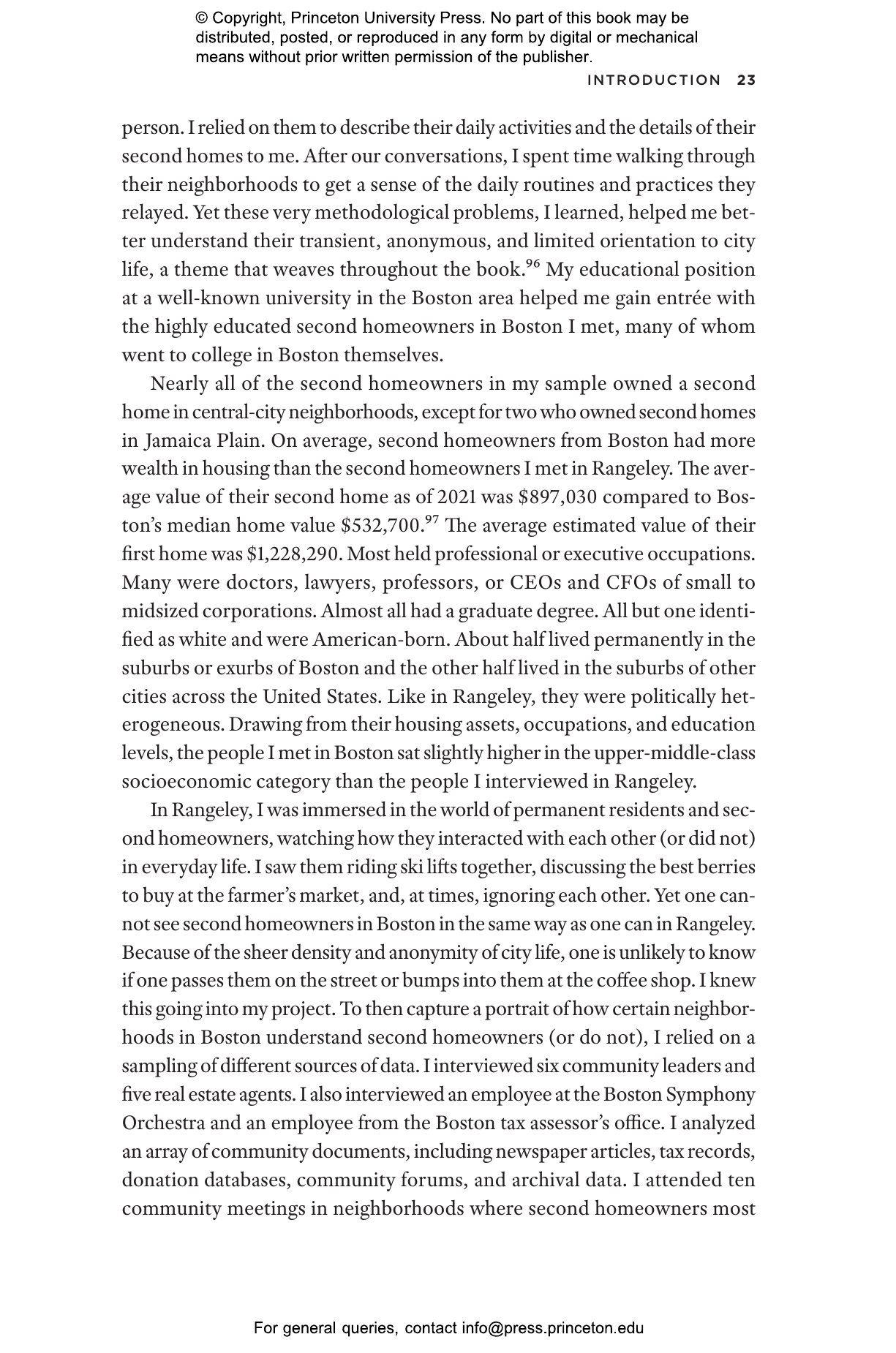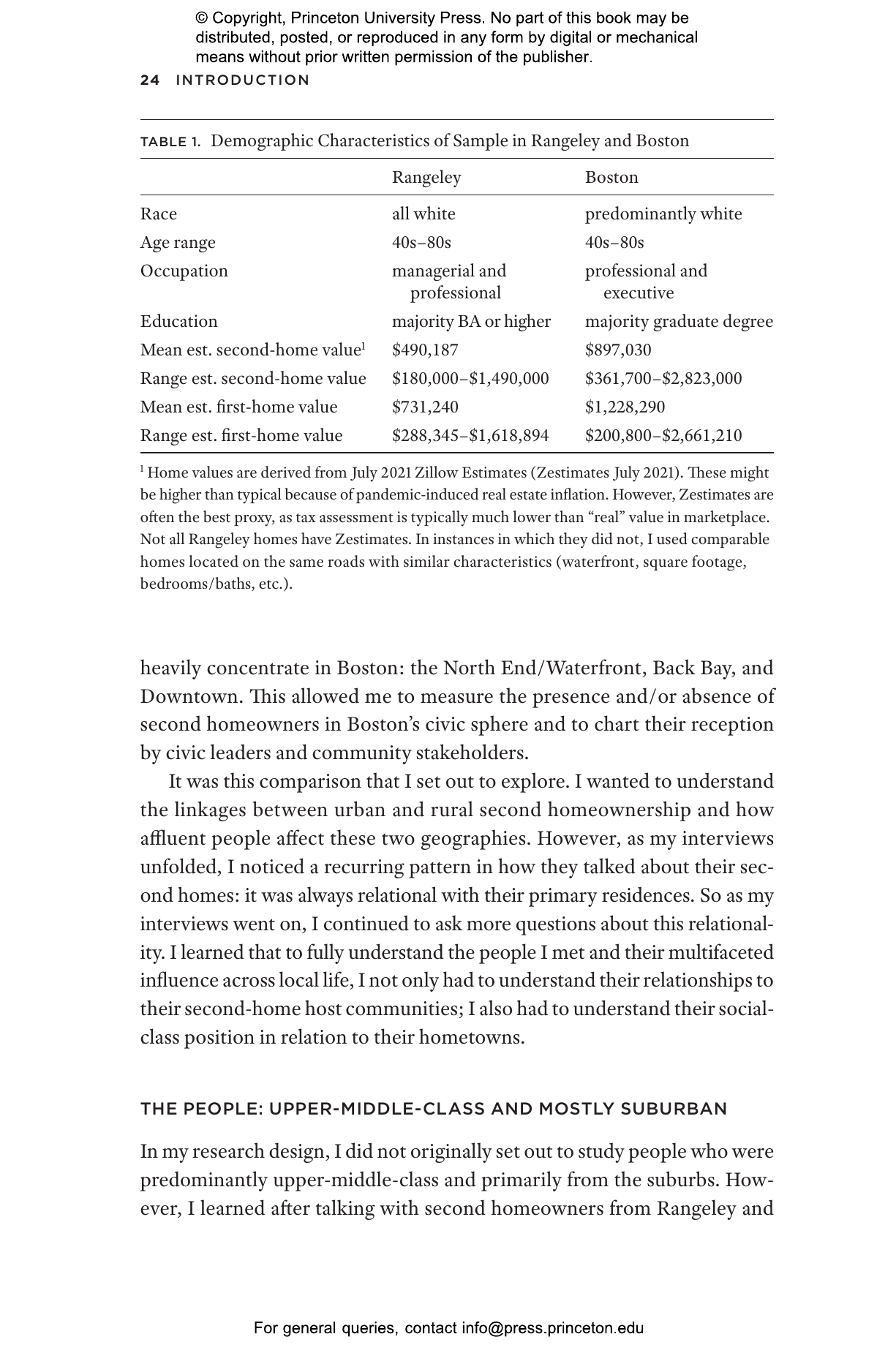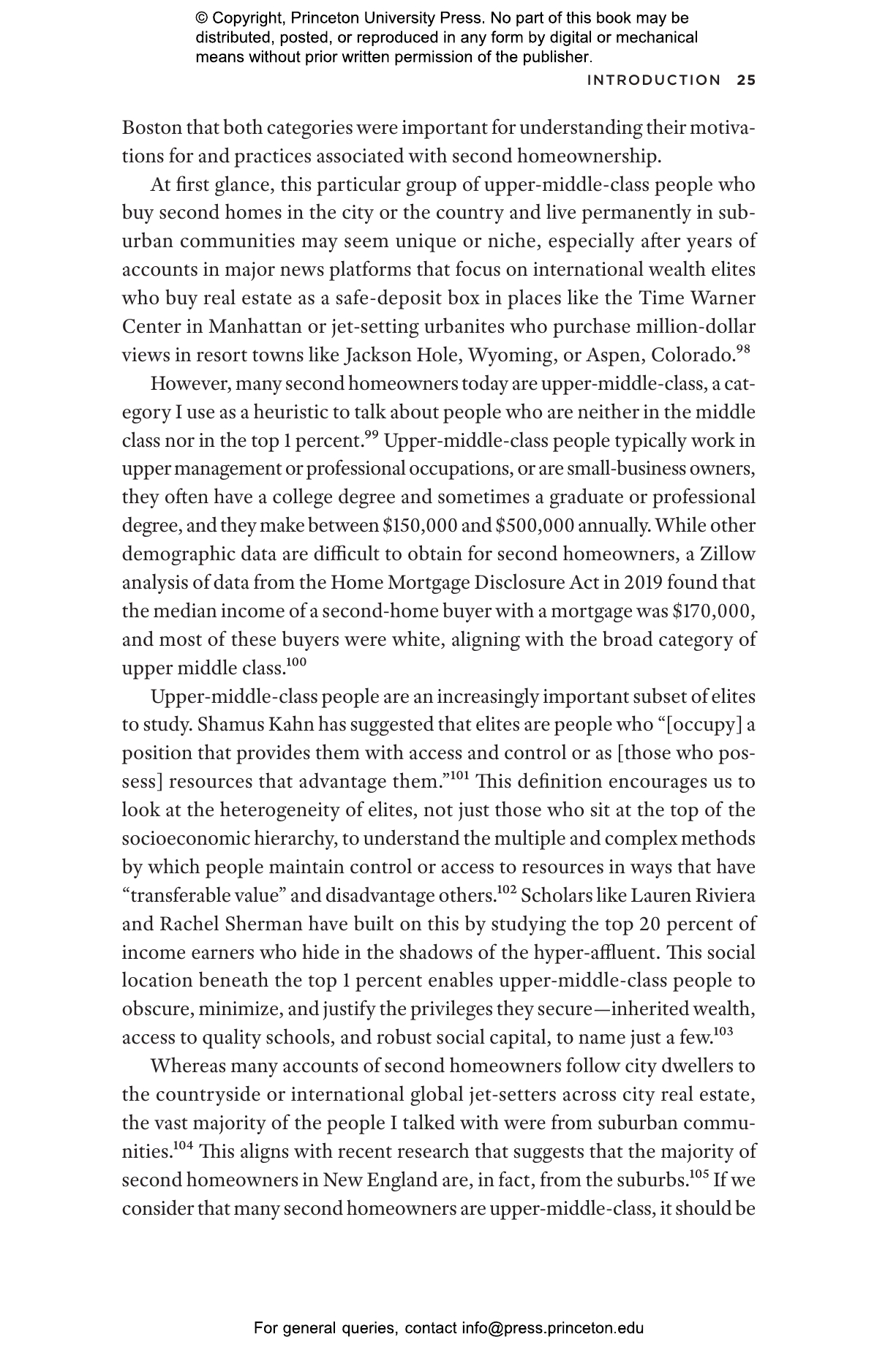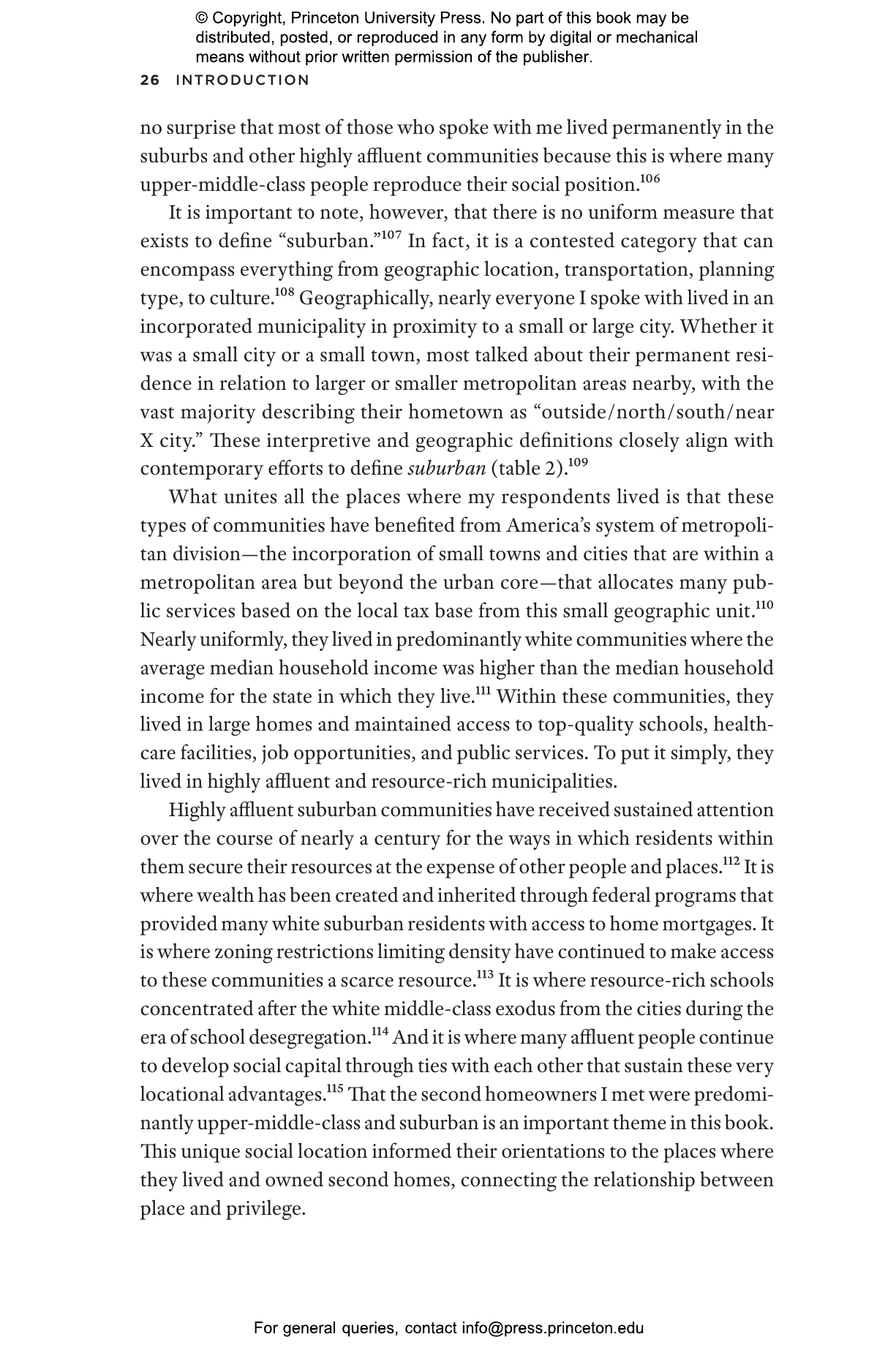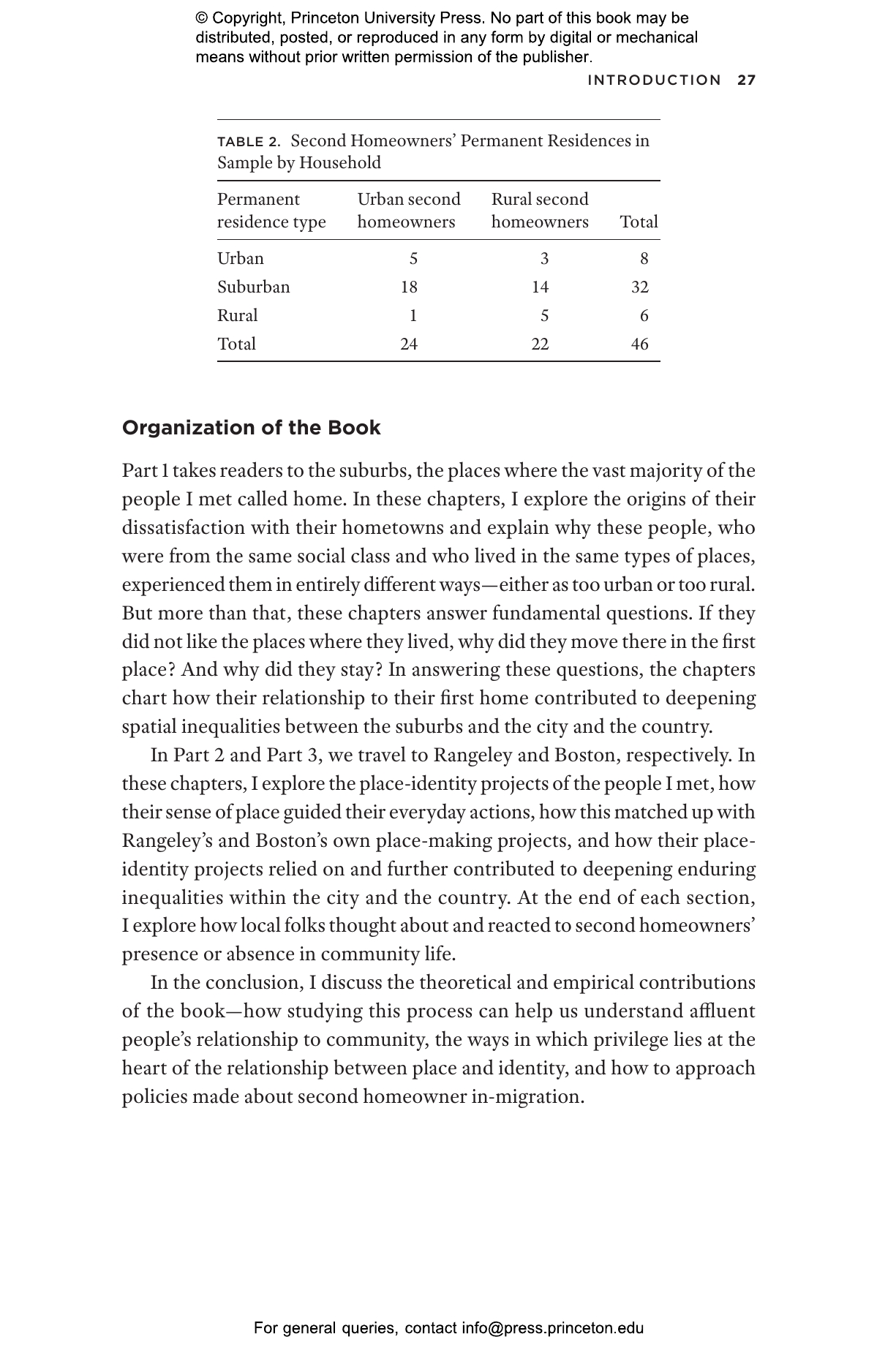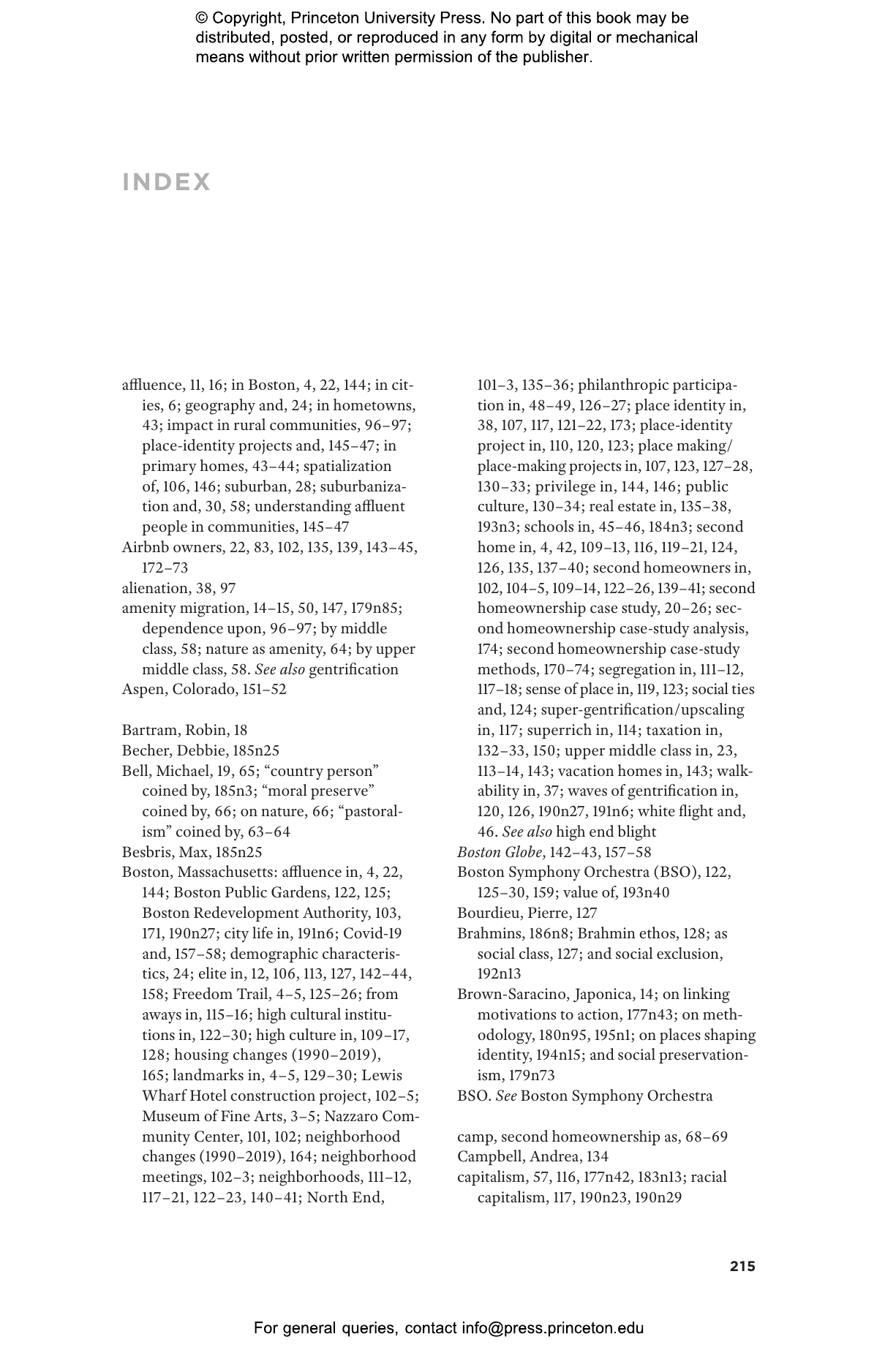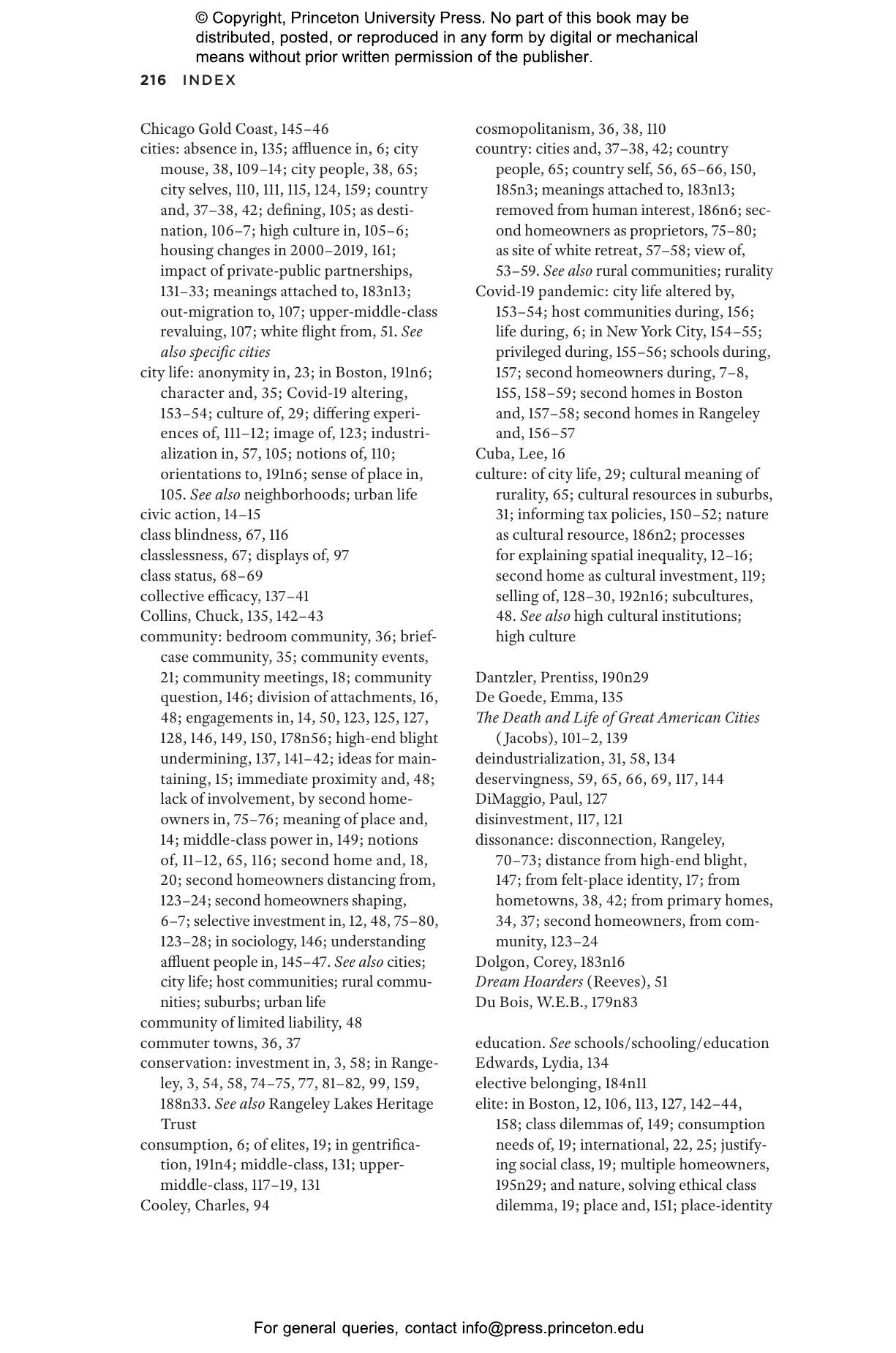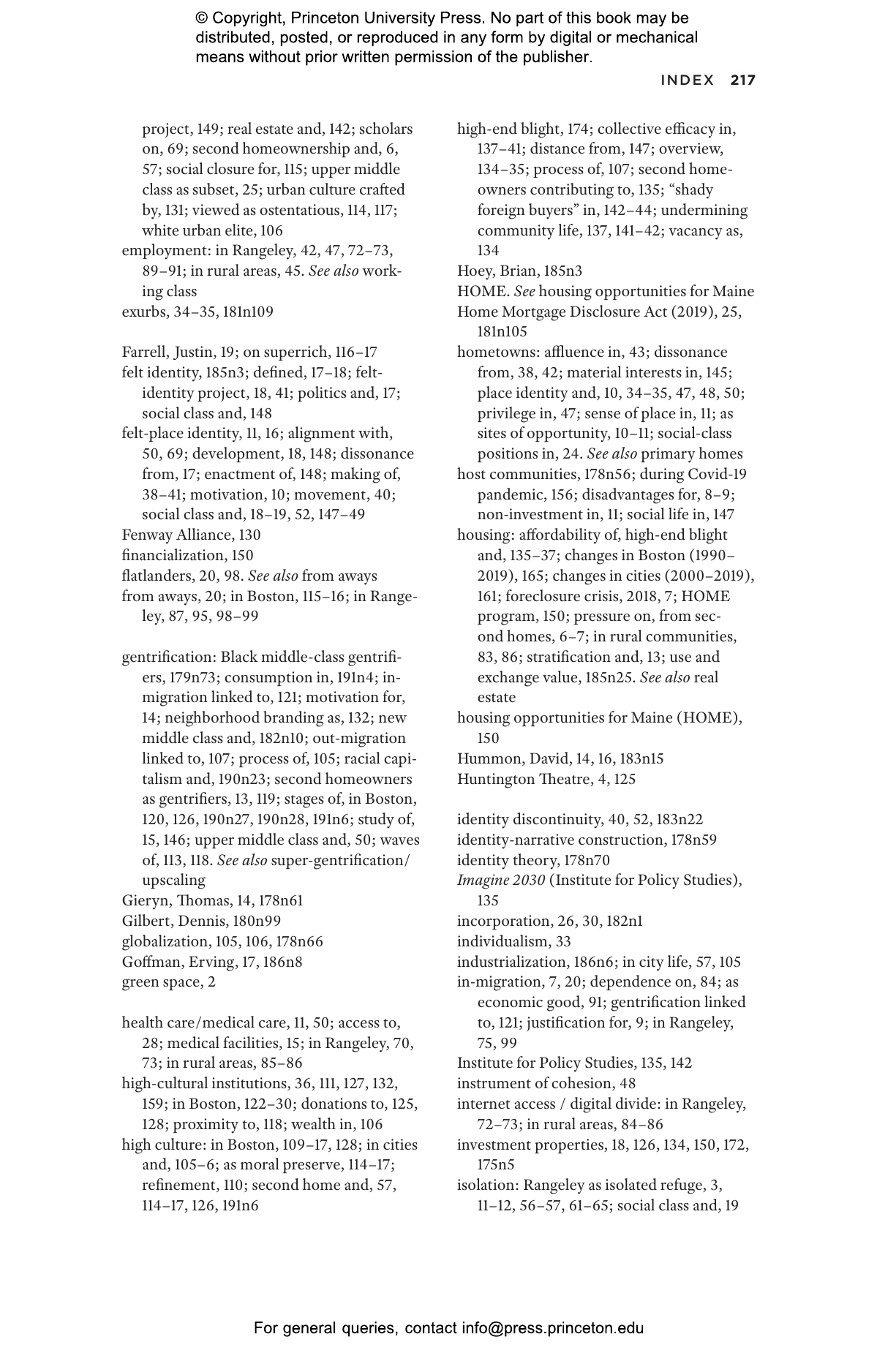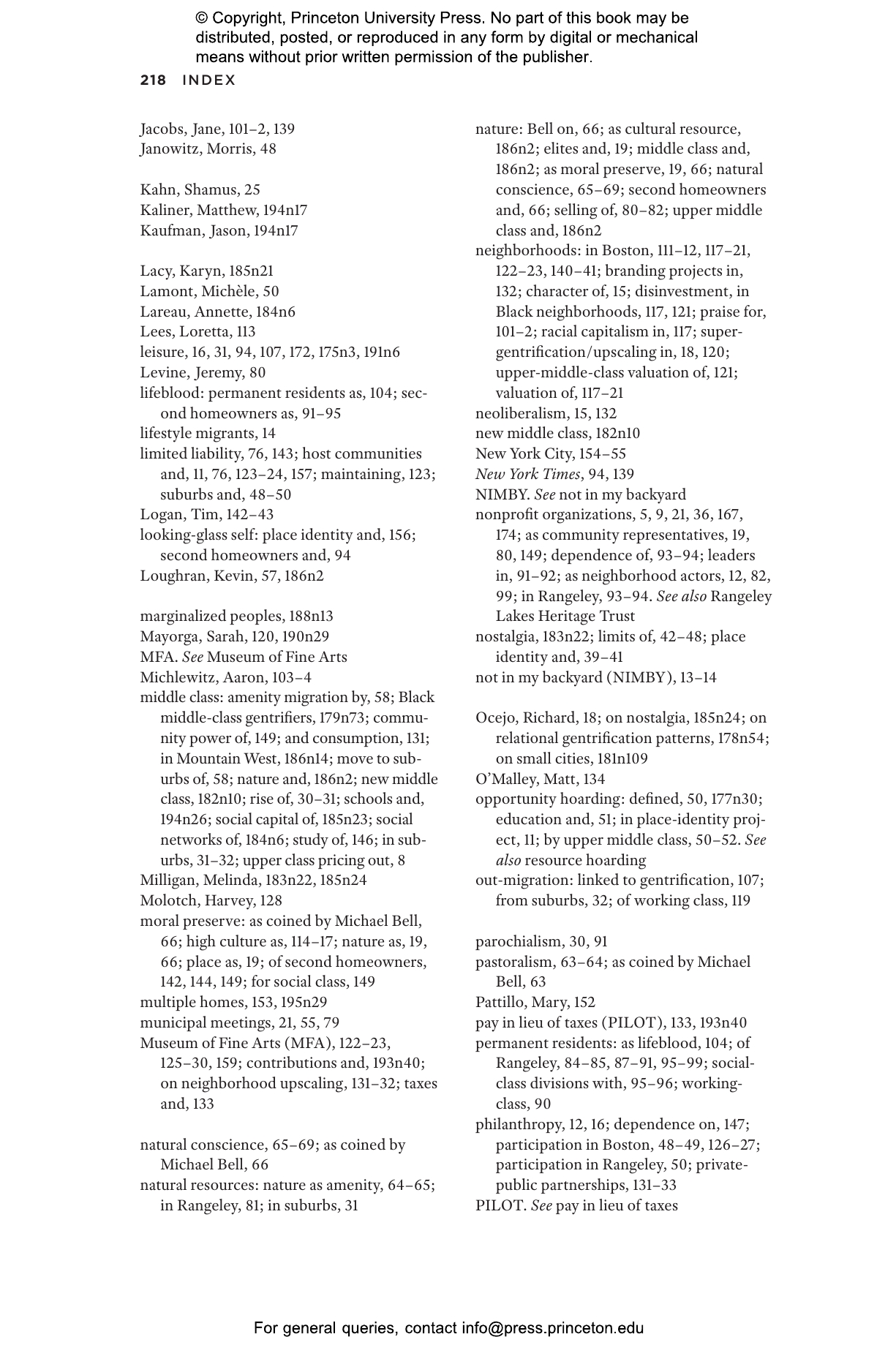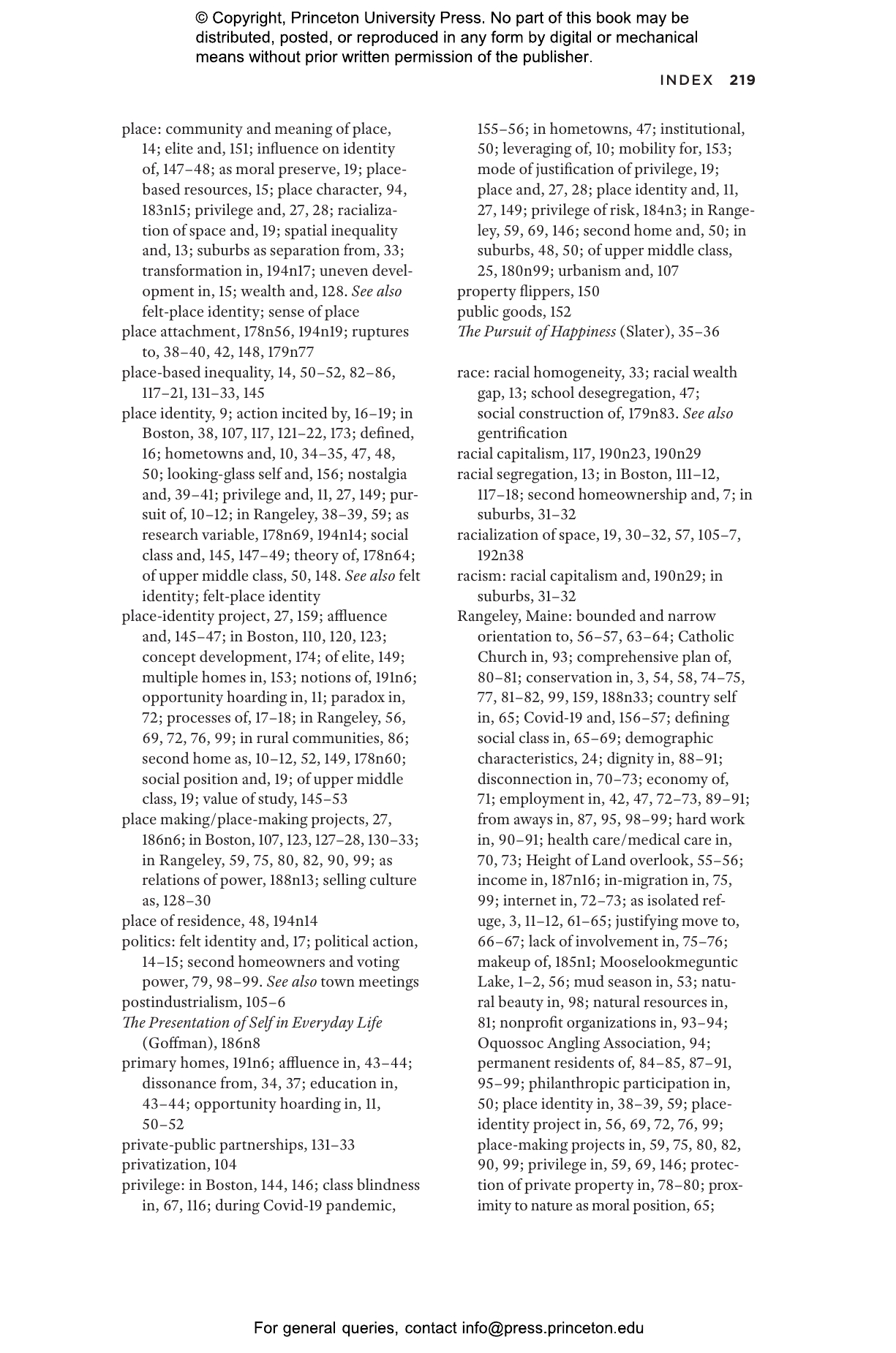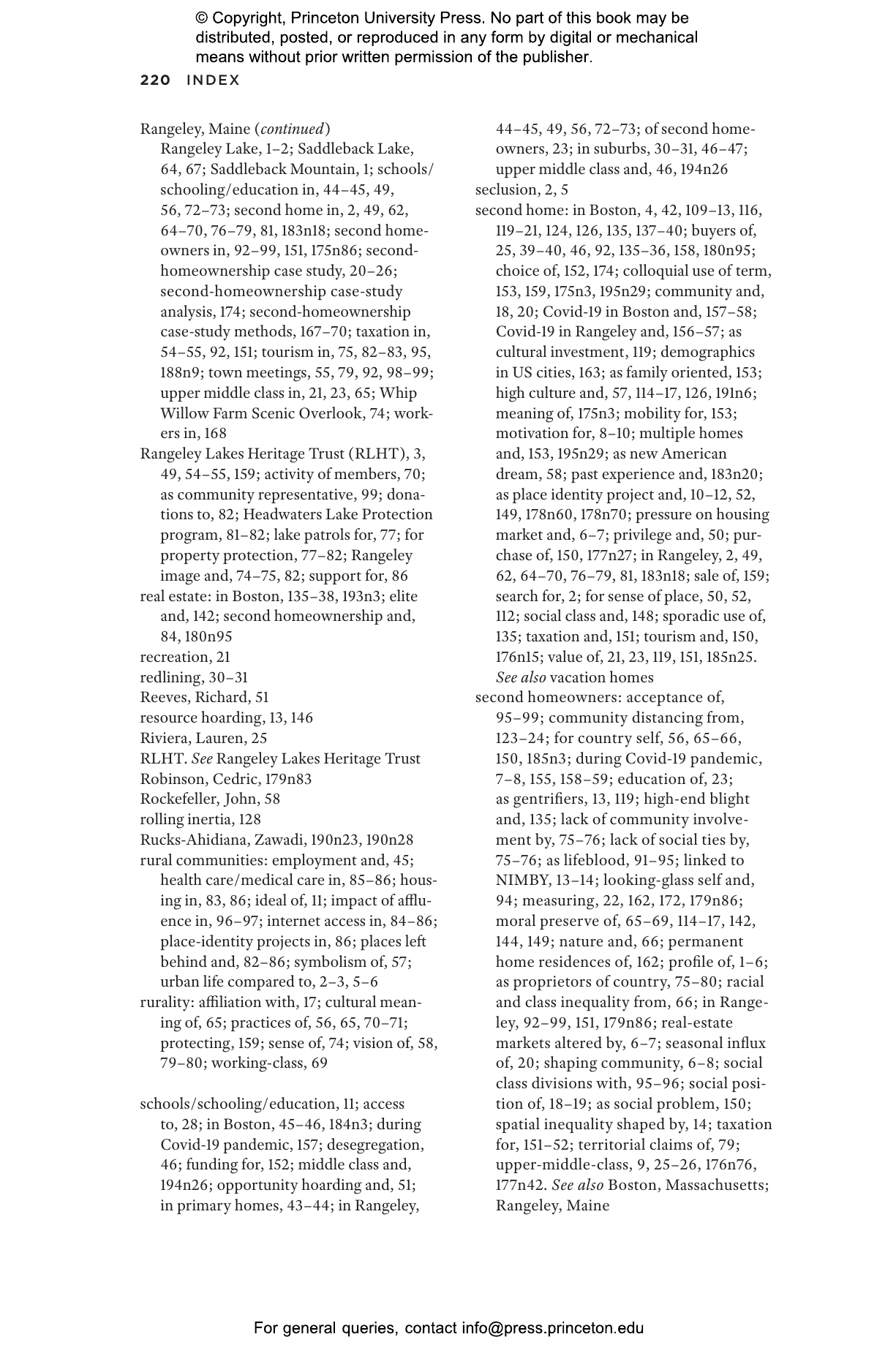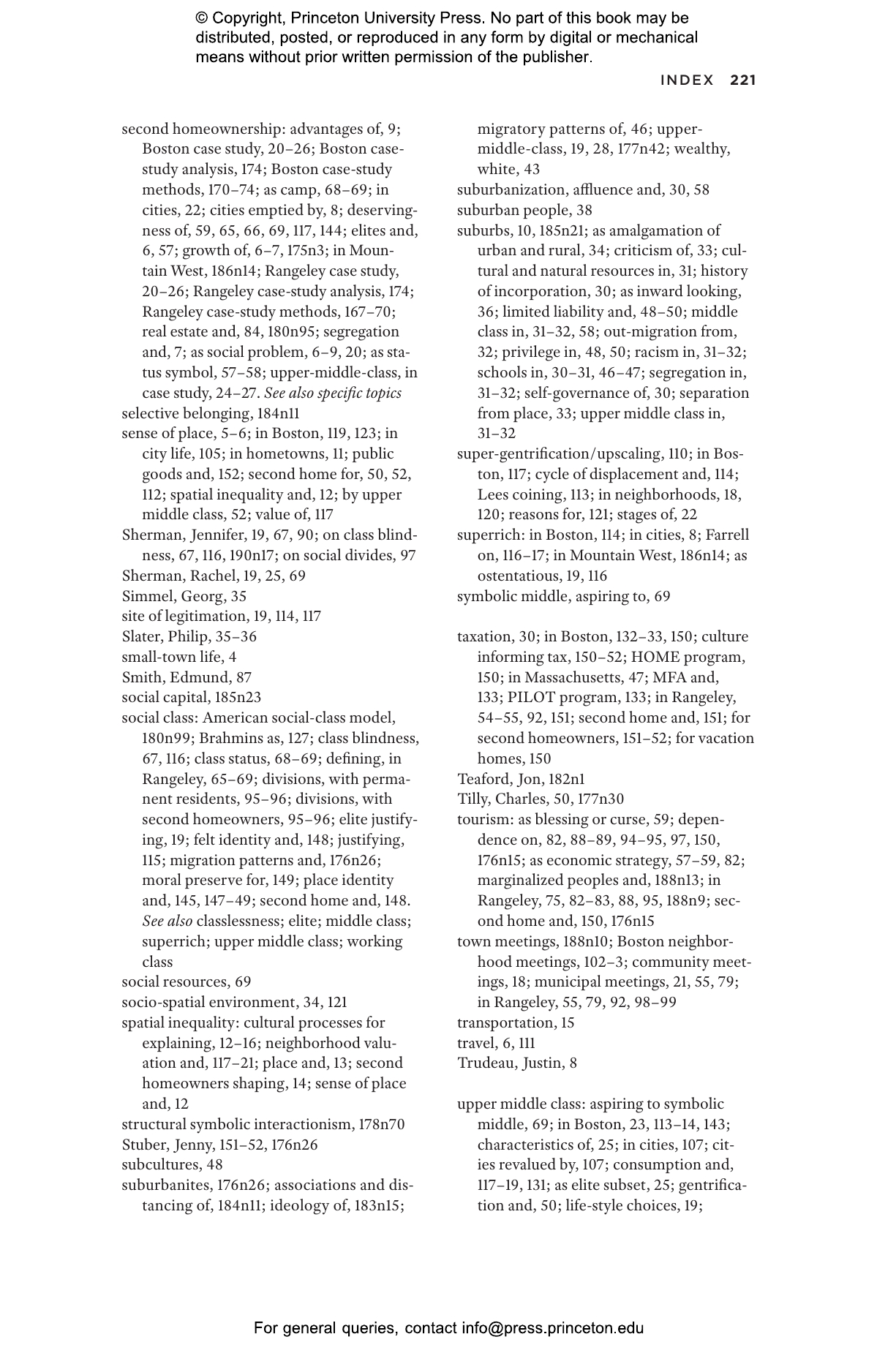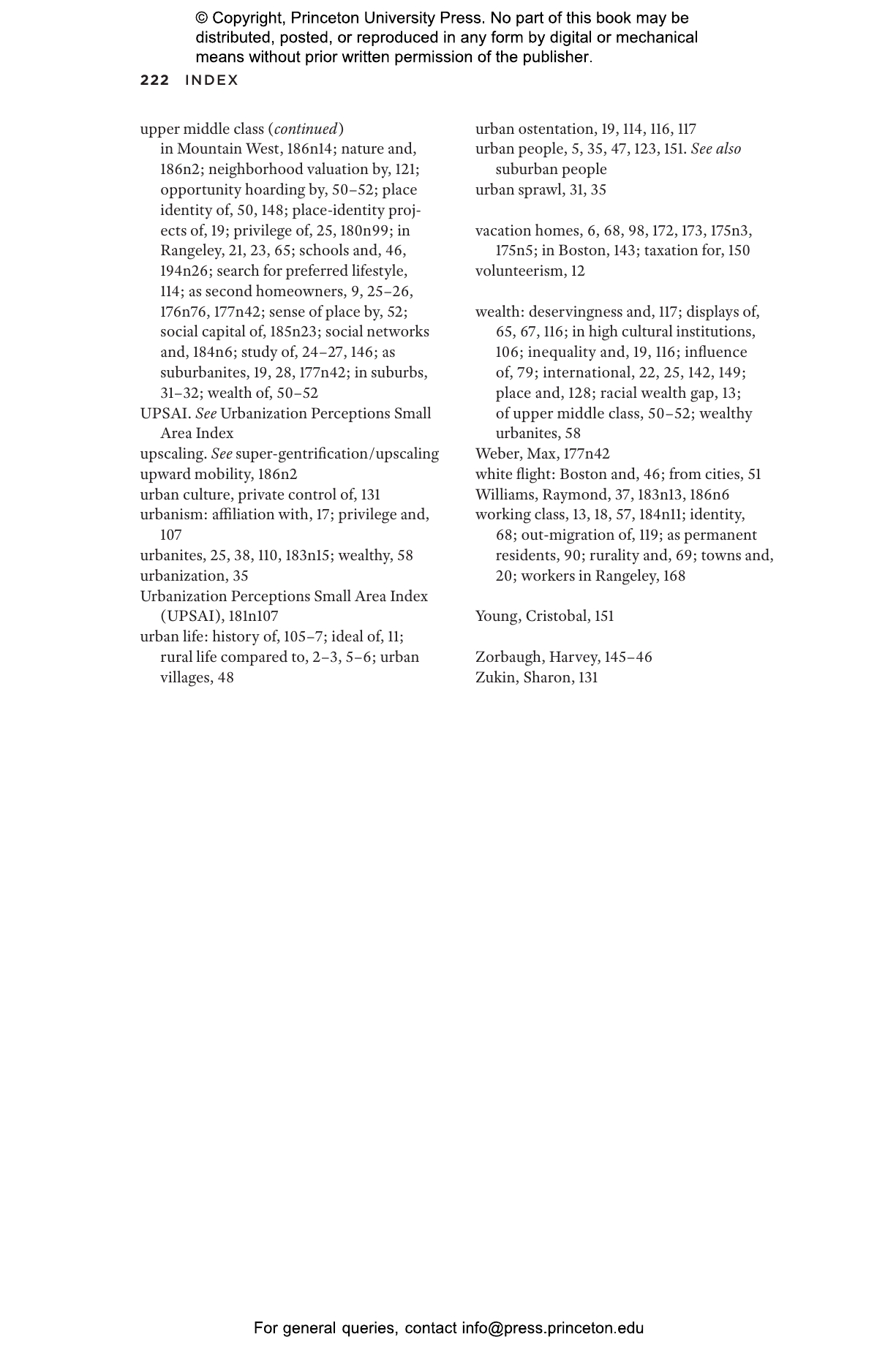In recent decades, Americans have purchased second homes at unprecedented rates. In Privileging Place, Meaghan Stiman examines the experiences of predominantly upper-middle-class suburbanites who bought second homes in the city or the country. Drawing on interviews with more than sixty owners of second homes and ethnographic data collected over the course of two years in Rangeley, Maine, and Boston, Massachusetts, Stiman uncovers the motivations of these homeowners and analyzes the local consequences of their actions. By doing so, she traces the contours of privilege across communities in the twenty-first century.
Stiman argues that, for the upper-middle-class residents of suburbia who bought urban or rural second homes, the purchase functioned as a way to balance a desire for access to material resources in suburban communities with a longing for a more meaningful connection to place in the city or the country. The tension between these two contradictory aims explains why homeowners bought second homes, how they engaged with the communities around them, and why they ultimately remained in their suburban hometowns. The second home is a place-identity project—a way to gain a sense of place identity they don’t find in their hometowns while still holding on to hometown resources. Stiman’s account offers a cautionary tale of the layers of privilege within and across geographies in the twenty-first century.
Meaghan L. Stiman is assistant professor in the Department of Sociology at William & Mary in Williamsburg, Virginia.
"A good addition to place-making and gentrification literature."—Choice
“Second homeownership is typically seen as a by-product of inequalities in society—some people have the resources to afford two homes while most people don’t. In this remarkable new book, Meaghan Stiman flips this thinking on its head. Second homeowners don’t just benefit from unequal conditions, she argues, they also reproduce them. A delight to read, this important work adds to our understanding of place and inequality.”—Richard E. Ocejo, author of Sixty Miles Upriver: Gentrification and Race in a Small American City
“This superb book offers fascinating insight into rural and urban second-home ownership in Maine and Boston. Stiman unpacks the everyday practices of attaching senses of self to a new place, revealing the ways in which the pursuit of place identity contributes to deepening place-based inequalities. Real food for thought on affluent people’s relationships to the urban, the rural, and indeed the suburban, that has an important policy purchase.”—Loretta Lees, Initiative on Cities, Boston University
“Most people do not have the means to find and/or create a sense of place that fits their imagined ideals of living in cities, suburbs, and towns. Those who do can play with their place identities through second-home ownership. Stiman goes to great lengths to capture who these people are, what motivates them, and how their decisions affect the places they live in part-time”—Michael Ian Borer, author of Vegas Brews: Craft Beer and the Birth of a Local Scene
“This is not just a book about second homeowners. Privileging Place reveals that residential choices are intimately tied to our dissatisfaction with American norms. Even suburban communities with desirable schools and plentiful resources fail to satisfy their residents. Stiman urges us to reconsider how the pursuit of a more fulfilling place identity by the privileged few impacts the communities we build.”—Robin Bartram, author of Stacked Decks: Building Inspectors and the Reproduction of Urban Inequality


